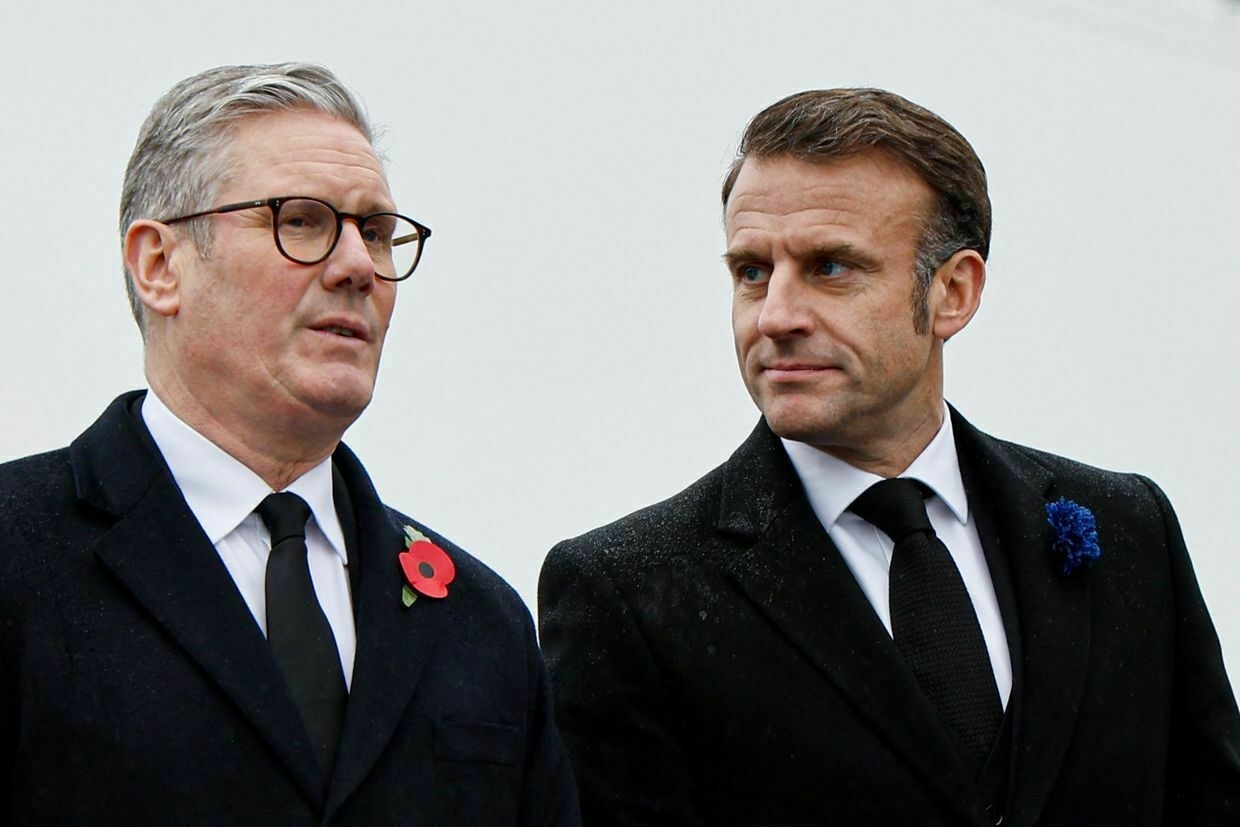-
Allies must impose 'hard measures' on Russia to prevent stalled peace talks, Lithuanian FM says
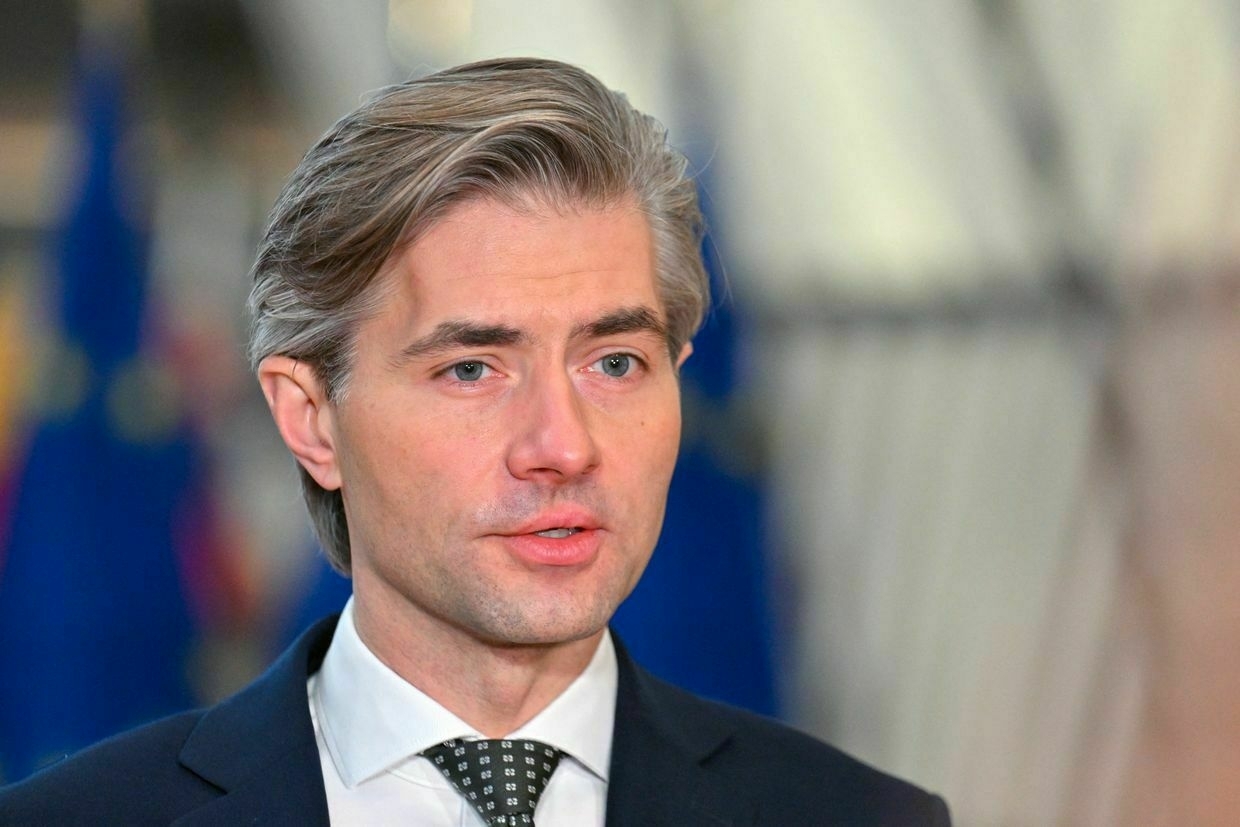
Ukraine’s allies must impose stricter measures on Russia “sooner than later” to prevent Moscow from dragging out peace talks and escalating its demands, Lithuanian Foreign Minister Kestutis Budrys told The Kyiv Independent on April 1.
“So, in purpose to cut this trend, in purpose to stop this scenario, we have to show and introduce the hard measures sooner than later,” Budrys said.
His remarks come amid U.S. President Donald Trump’s effort to broker a peace deal between Kyiv and Moscow.
Despite Trump’s mediation, Moscow rejected a full 30-day ceasefire agreed upon between Ukraine and the U.S. in Jeddah on March 11, demanding concessions that would weaken Kyiv’s defenses, including halting foreign military aid.
Although Washington managed to secure a partial ceasefire, Russia went on to strike energy infrastructure in Kherson on March 27, contradicting its own claims that it would refrain from such attacks.
Budrys stressed that Western powers must apply direct pressure to force Moscow to negotiate in good faith. “We haven’t seen in history that Russia, without exact pressure, would agree on anything,” he said.
While Trump has floated the idea of additional sanctions and tariffs on Russian oil, he has yet to take concrete action. Budrys called for setting deadlines to prevent Russia from prolonging negotiations and insisted that the West’s commitment to Ukraine must remain firm.
“Now we are pressed in time, and we are pressed in the demand, and it is needed more from Europe to do now. Because we cannot rely, as the U.S. administration is showing us, so much on American capabilities,” Budrys added.
While the U.S. refuses to provide security guarantees to Ukraine, several European nations have been preparing plans to send troops to Ukraine as part of a “reassurance force” in case a ceasefire is reached.
France is advocating for a European-led deployment along the Dnipro River, according to an unnamed French official cited by the Associated Press. Other proposals include stationing forces in western Ukraine or a neighboring country.
French President Emmanuel Macron has pushed for the mission even without U.S. involvement, while U.K. Prime Minister Keir Starmer has urged European allies to secure U.S. backing before moving forward.
-
Ukraine engages in consultations with U.S. on new mineral agreement amid concerns over national interests and security guarantees
Ukraine aims to formulate a new mineral agreement that aligns with the national interests of both nations. Foreign Minister Andriy Sybiha confirmed that Ukraine has initiated a first round of consultations with American counterparts regarding a new draft of a mineral agreement proposed by the United States. He stated that Kyiv was ready to sign a previously developed framework agreement, and now the Ukrainian side has a proposal for expansion and a new text for the agreement.
Sybiha emphasized that Ukraine has legislation concerning the processing of such documents. He added that Ukraine wishes to sign a document that serves the national interests of both countries.
"We believe that the text of the agreement, which ensures the presence of major American businesses in Ukraine, is a contribution to the country's security infrastructure," Sybiha commented.
Previously, Donald Trump had claimed that President Volodymyr Zelensky is considering backing out of the mineral agreement with the United States. In response, he warned the Ukrainian leader of "big, big problems."
The Washington Post highlighted concerns about the new mineral agreement proposed by the USA, comparing its terms to Ukraine being defeated and having to pay perpetual reparations as if bound by wartime debts. This proposed agreement, according to Ukrainian politicians, fails to include security guarantees for Ukraine, and all U.S. support during the conflict is treated as a debt repayable with interest from agreement proceeds. Reports suggest the U.S. side desires control not only over rare earth mineral extraction but all mineral resources and related extraction infrastructure.
-
EU transfers $3.7 billion to Ukraine under Ukraine Facility program, PM Shmyhal says
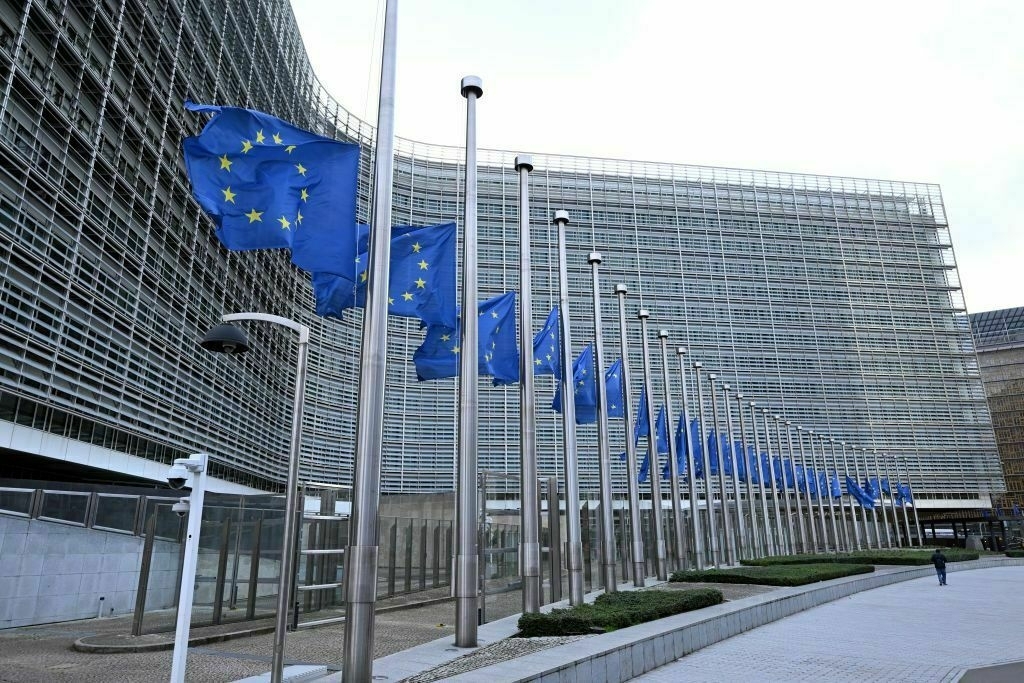
The European Commission transferred 3.5 billion euros ($3.77 billion) to Ukraine on April 1 under the Ukraine Facility program, Prime Minister Denys Shmyhal announced on X.
Shmyhal said the funds would support Ukraine’s macroeconomic stability, adding that total financial assistance under the Ukraine Facility has now reached 19.6 billion euros ($21.1 billion).
"Ukraine stays firmly on the path to sustainable peace, recovery, and a European future. Grateful to the EU for strategic trust and partnership," he wrote.
First Deputy Prime Minister and Economic Development Minister Yulia Svyrydenko said the latest tranche includes 3.1 billion euros ($3.3 billion) in soft loans and 400 million euros ($431 million) in grants, which will help cover priority budget expenditures.
The funding followed Ukraine’s fulfillment of all requirements under the Ukraine Plan for the fourth quarter of 2024. The Plan outlines Kyiv’s strategy for recovery, reconstruction, and modernization, as well as a reform timetable tied to Ukraine’s EU accession process.
To qualify for the latest disbursement, Kyiv implemented 13 key reforms, including measures to harmonize Ukrainian legislation with European norms, strengthen digital transformation, and strengthen the independence of the energy regulator.
The EU approved the four-year Ukraine Facility in February 2024, allocating 33 billion euros ($36 billion) in loans and 17 billion euros ($18 billion) in grants to support Ukraine’s economy and post-war reconstruction efforts.
India looking for new oil suppliers amid Trump’s threats to tighten sanctions on Russia, Bloomberg reportsDonald Trump previously threatened to impose additional tariffs against Russia, threatening a “25% tariff on all oil, a 25- to 50-point tariff on all oil.”The Kyiv IndependentKateryna Hodunova
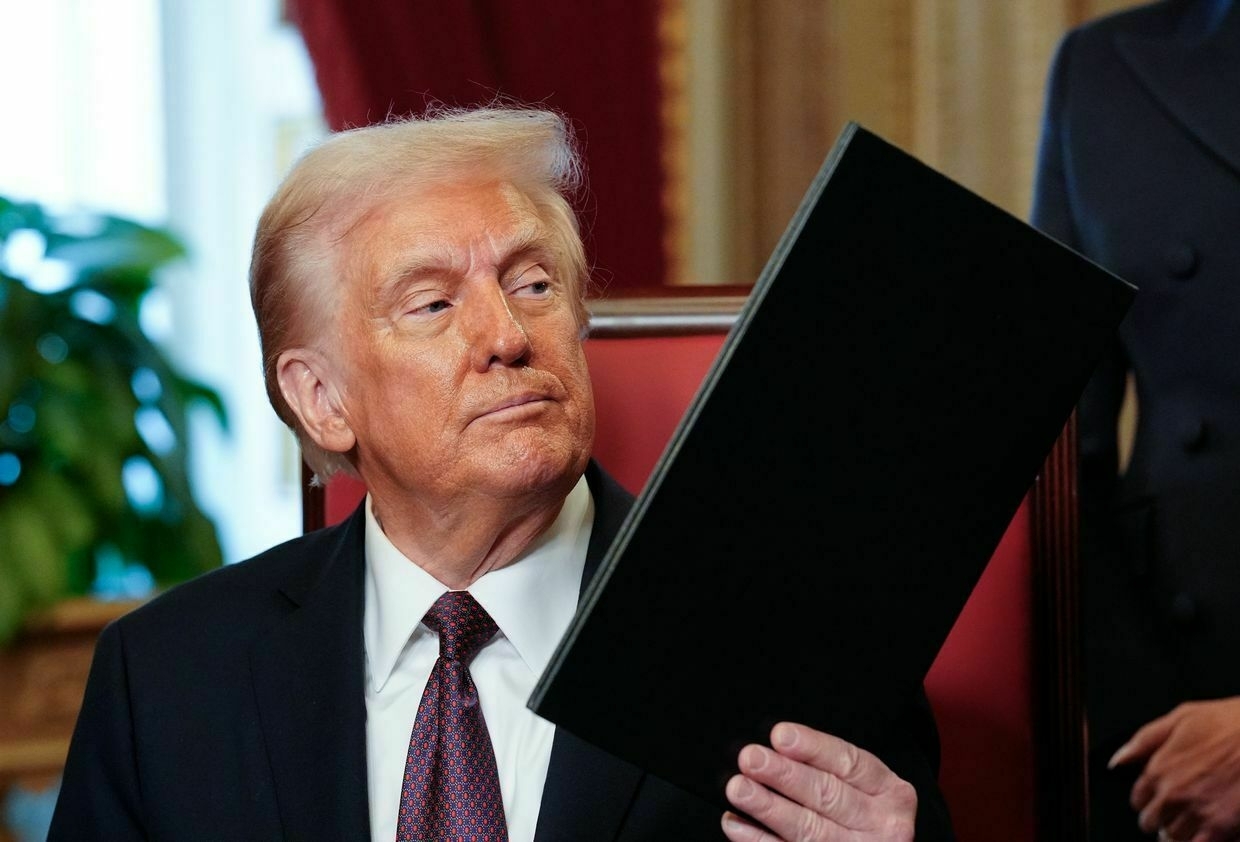
-
India looking for new oil suppliers amid Trump's threats to tighten sanctions on Russia, Bloomberg reports
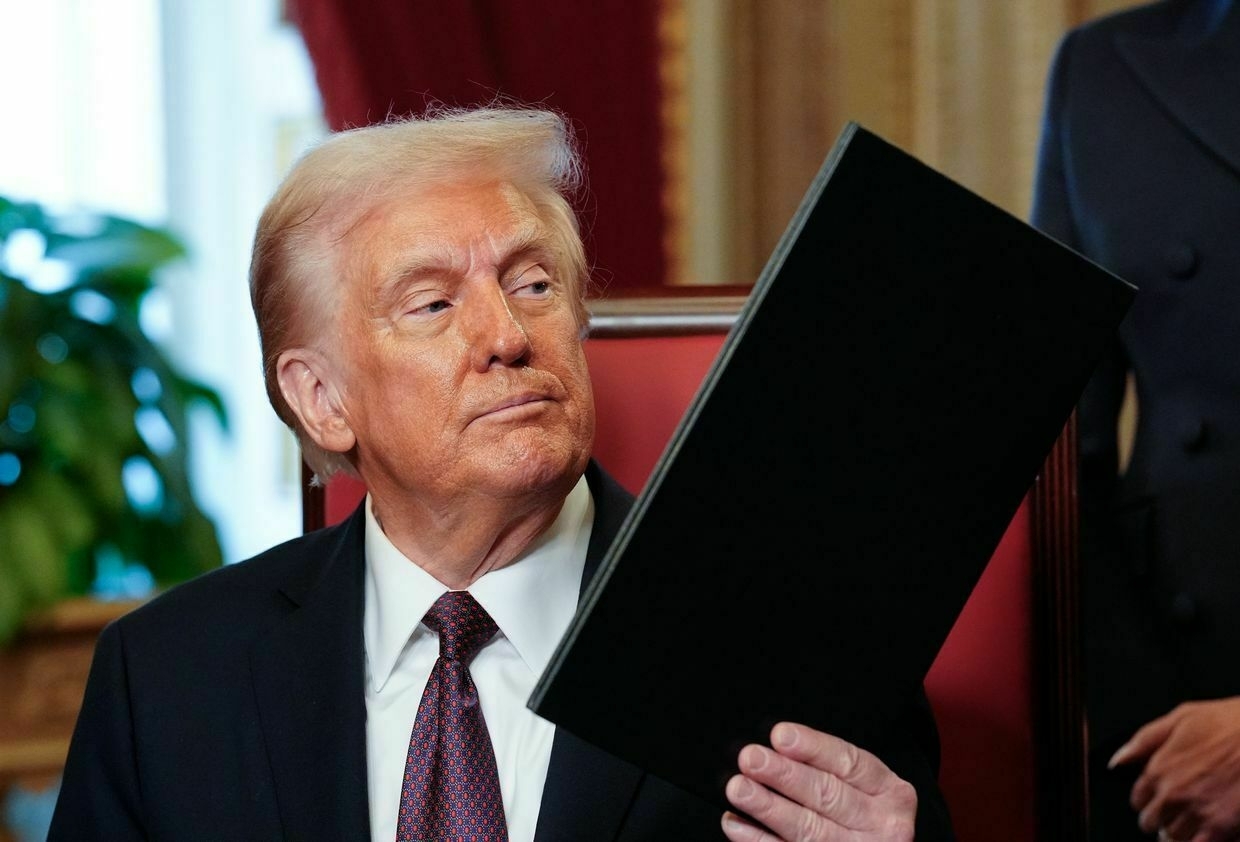
Indian refiners are seeking new suppliers of crude oil after U.S. President Donald Trump threatened to impose new sanctions on Russia, Bloomberg reported on April 1.
India, now the biggest importer of Russian oil, benefits from discounted grades like Urals, enabling significant cost savings for its refiners.
India’s state-owned Bharat Petroleum Corp. and Hindustan Petroleum Corp. are looking for additional options for May deliveries from regions such as the Middle East, North Sea, and Mediterranean, undisclosed traders told Bloomberg.
This week’s tenders were seen as outside the regular procurement cycle, as barrels for next month’s delivery are usually bought in early March.
The emergence of such rapid demand for non-Russian cargoes probably signals concerns about India’s ability to obtain all the barrels that refiners previously purchased from Moscow, traders said.
Trump previously threatened to impose additional tariffs against Russia, threatening a “25% tariff on all oil, a 25- to 50-point tariff on all oil.” The U.S. president has said he is “pissed off” by the Kremlin’s attacks on President Volodymyr Zelensky’s credibility.
The Trump administration recently tightened sanctions on Russia’s oil and gas industry, letting lapse an exemption that allowed Russian banks to use U.S. payment systems for energy transactions.
At the same time, as Trump attempts to set up a quick ceasefire between Russia and Ukraine, Moscow could receive relief from some of the previously imposed sanctions, Ihor Burakovsky, head of the board at the Institute for Economic Research and Policy Consulting, told the Kyiv Independent.
The Trump administration officials have also signaled that some of the sanctions imposed on Russia could be lifted as part of a ceasefire or peace deal.
What Russia really wants from the Black Sea ceasefire dealWith much fanfare, the U.S. on March 25 announced it had brokered an agreement between Russia and Ukraine to “eliminate the use of force” in the Black Sea after two days of talks in Saudi Arabia. But while Kyiv said it was ready to abide by it straight away,The Kyiv IndependentDominic Culverwell
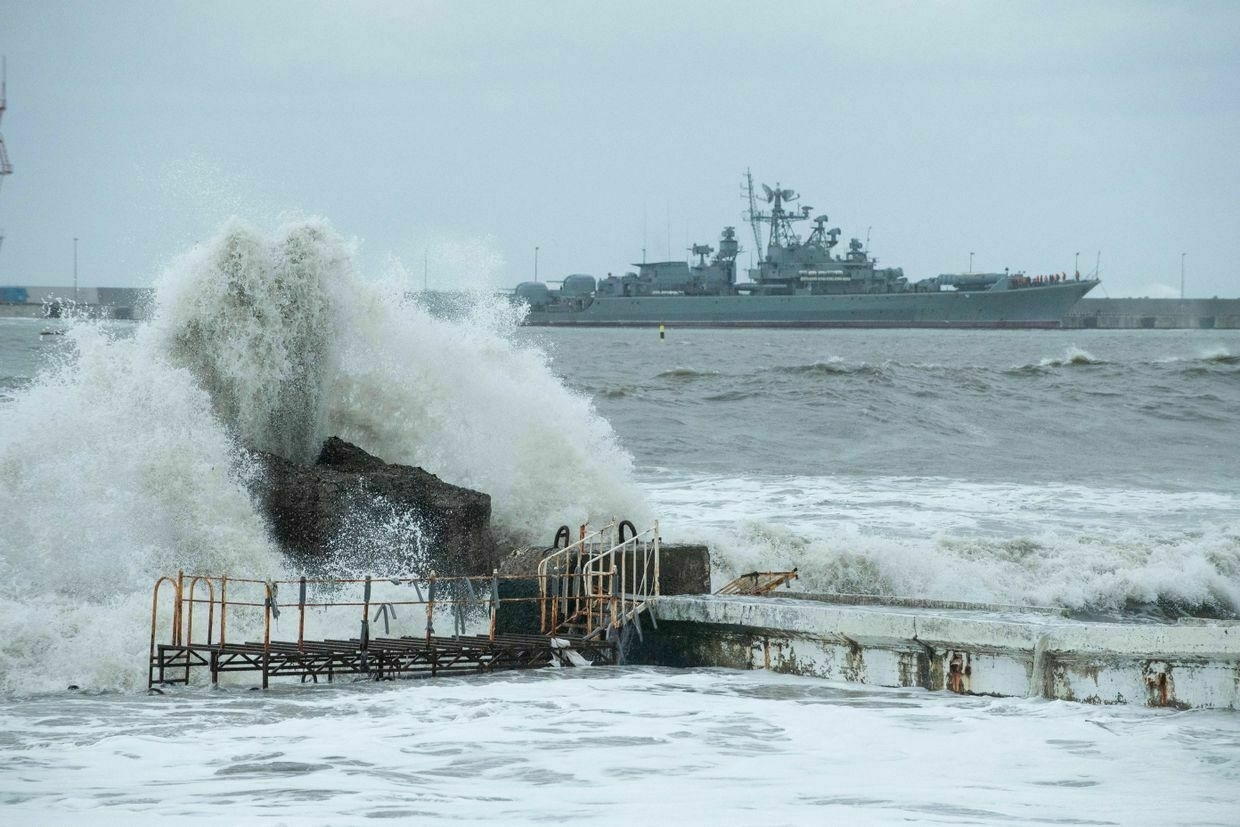
-
TRUMP'S PASTOR Was In Ukraine – He Was Shocked by What He Saw
-
4 Ukrainians killed, 4 injured in car accident in Austria
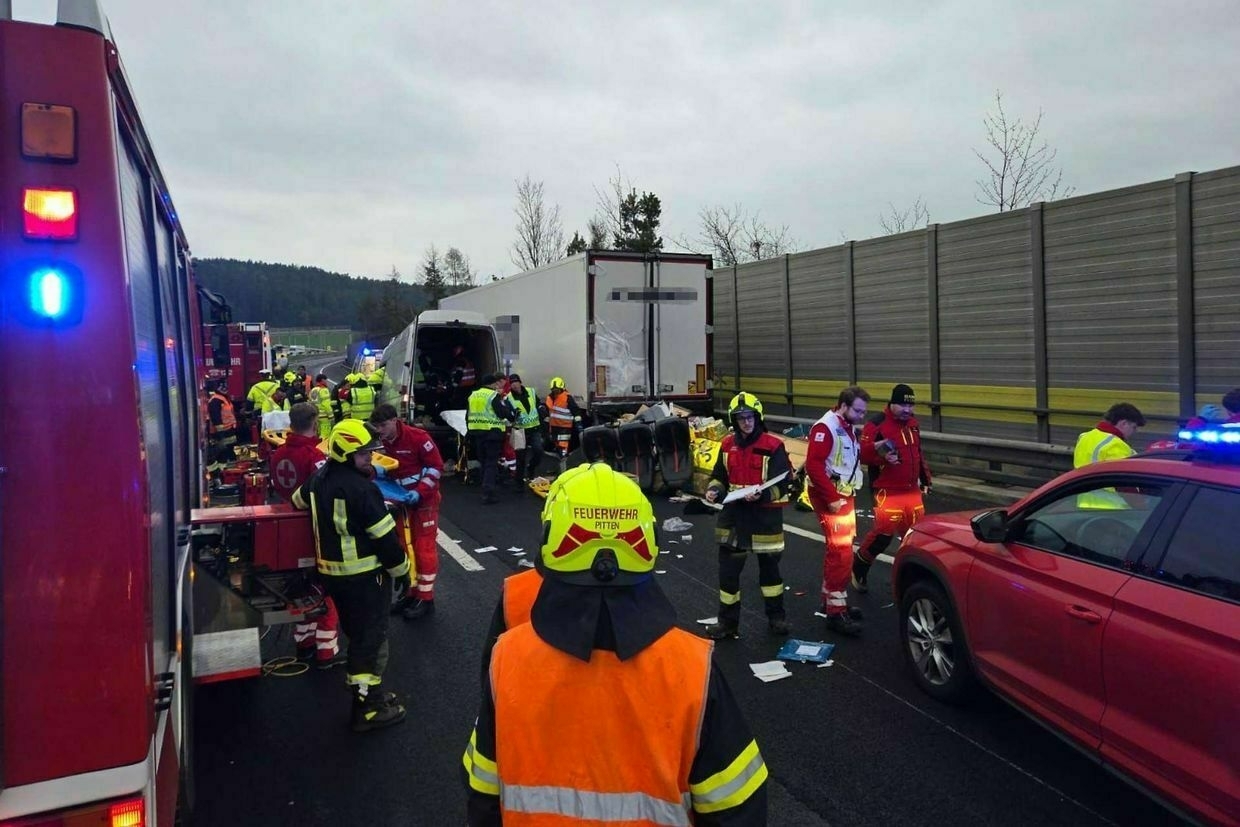
A minibus carrying Ukrainian citizens was involved in a fatal accident in the Neunkirchen district of Lower Austria, killing four people and injuring four others, Austrian public broadcaster ORF reported on April 1.
The accident occurred at about 6:20 a.m. local time near the town of Seebenstein on the way to Vienna. According to preliminary police reports, the minibus hit the truck as it was pulling out of a parking lot.
There were eight Ukrainian citizens in the minibus, four of whom died, and four others were seriously injured. Following the collision, the passengers were trapped in the vehicle, and rescuers used hydraulic equipment to release them.
The driver and passenger of the truck suffered minor injuries.
The injured were taken to hospitals in Vienna, Lower Austria, and Burgenland.
73% of Ukrainians say Trump is bad for Ukraine, poll showsLast December, 54% of Ukrainians believed that the new U.S. president would have a positive impact on Ukraine.The Kyiv IndependentMartin Fornusek
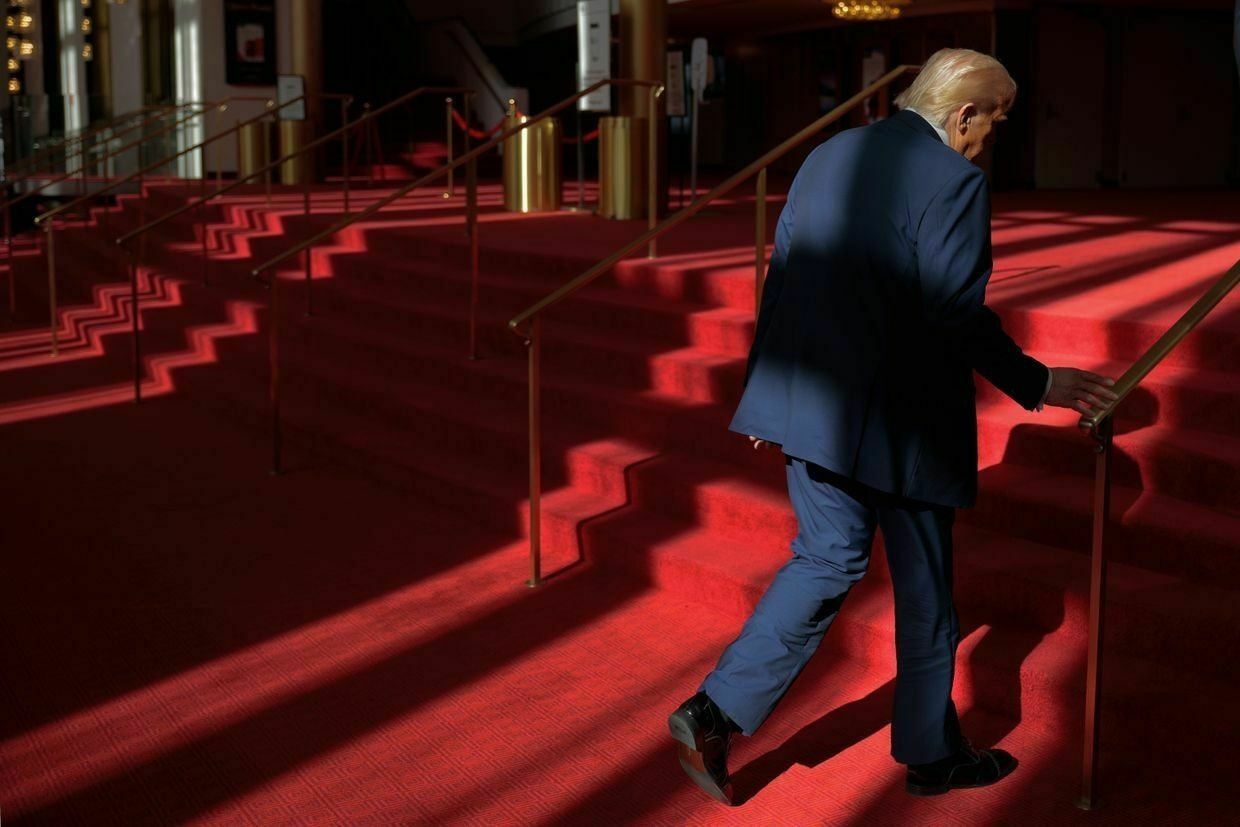
-
Trump's Ukraine ceasefire proposals don't address 'root causes' of war, Moscow claims
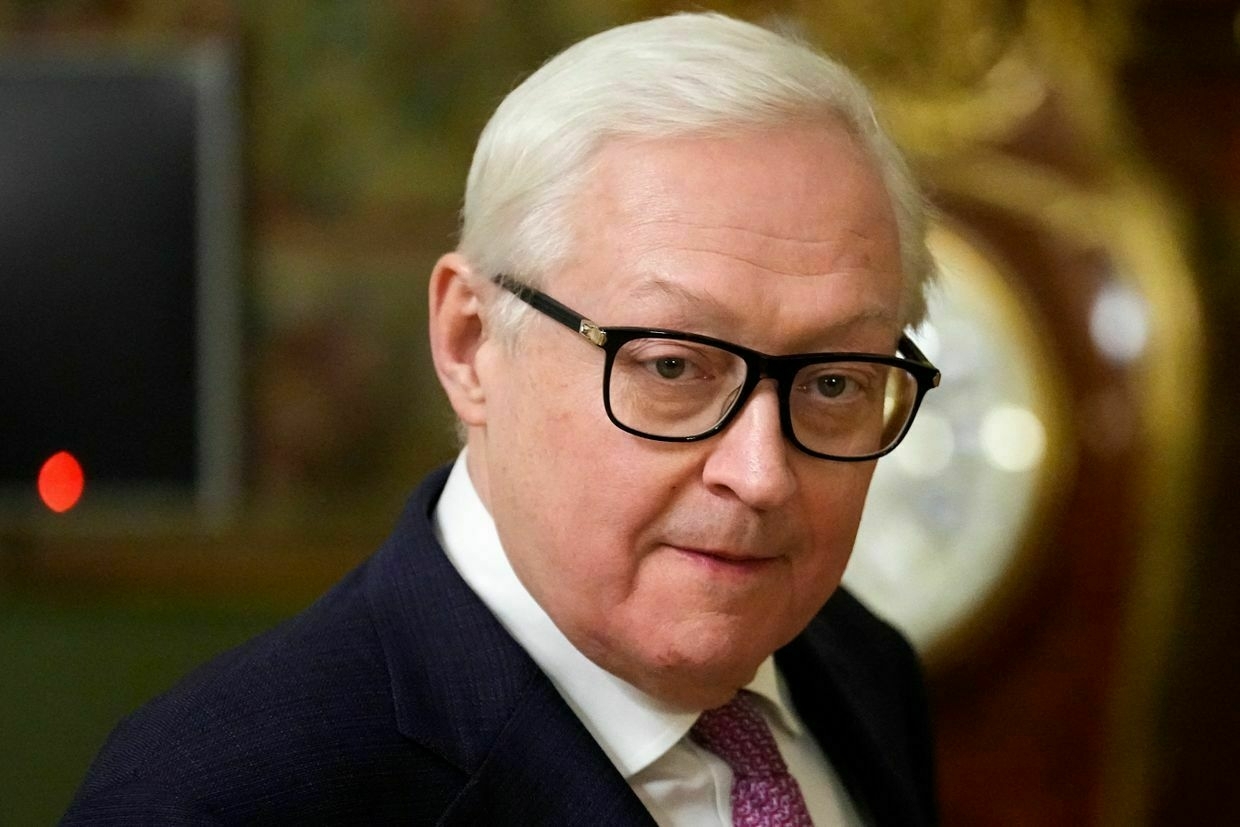
Russia takes U.S. proposals for a ceasefire in Ukraine “seriously” but cannot accept them “as they are now,” Russian Deputy Foreign Minister Sergei Ryabkov said in an interview with Russian magazine International Affairs Journal published on April 1.
“We have not heard a signal from (U.S. President Donald) Trump to Kyiv to end the war,” Ryabkov said in the excerpt of the interview.
“All that exists today is an attempt to find some kind of a scheme that would first allow us to achieve a ceasefire, as the Americans think of it."
The Trump administration has sought to broker a ceasefire in Ukraine as the first step toward a broader peace deal. Kyiv agreed to a full 30-day truce during talks with the U.S. on March 11, but Moscow rejected this proposal unless it included conditions undermining Ukraine’s ability to defend itself, including a full halt on foreign military aid.
The U.S. subsequently held technical talks with Ukraine and Russia in Riyadh last week, after which the three parties agreed to a partial ceasefire on strikes against energy facilities and in the Black Sea.
Kyiv has already accused Russia of violating the energy ceasefire, while Moscow has made similar accusations. The future of the Black Sea ceasefire is also in doubt as Moscow has linked it to the lifting of Western sanctions on food producers and some financial institutions.
According to Ryabkov, Washington’s proposals failed to address what he calls the “root causes of this conflict.”
Moscow has not backed down from its demands for a peace deal in Ukraine, including a ban on joining NATO and Kyiv’s withdrawal from four of Ukraine’s partially occupied regions: Donetsk, Luhansk, Kherson, and Zaporizhzhia oblasts.
In turn, Kyiv has rejected recognizing its occupied territories as Russian and any restrictions on joining foreign alliances like NATO or the EU.
While U.S. President Donald Trump has already ruled out Ukraine’s NATO membership and made clear he expects Kyiv to make territorial concessions, the White House is growing frustrated with Russian delays on a ceasefire deal.
Trump acknowledged on March 25 that Russia may be “dragging their feet” in peace talks, while Kyiv and other observers warn that Moscow intentionally prolongs the process to allow Russian forces to capture more territory.
What Russia really wants from the Black Sea ceasefire dealWith much fanfare, the U.S. on March 25 announced it had brokered an agreement between Russia and Ukraine to “eliminate the use of force” in the Black Sea after two days of talks in Saudi Arabia. But while Kyiv said it was ready to abide by it straight away,The Kyiv IndependentDominic Culverwell
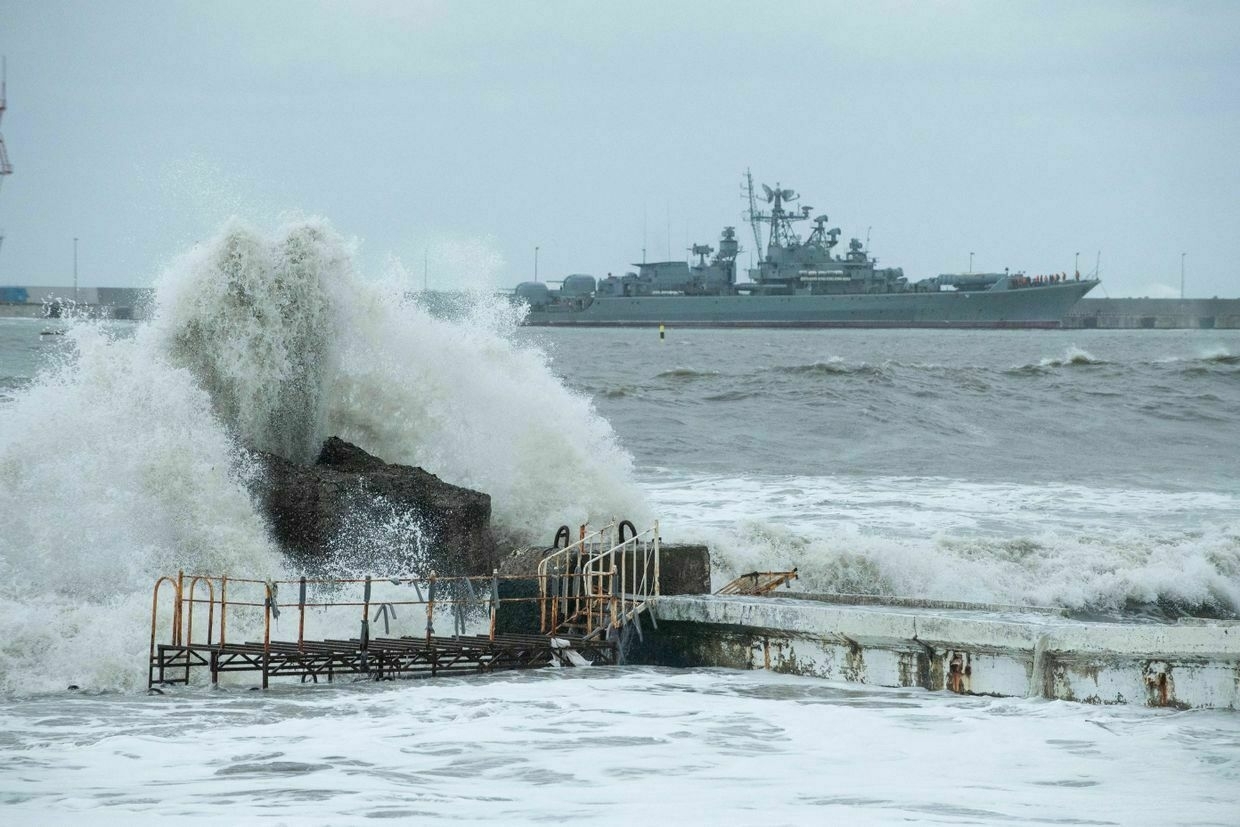
-
Ukraine received new minerals deal draft on March 28, talks with US ongoing, FM confirms
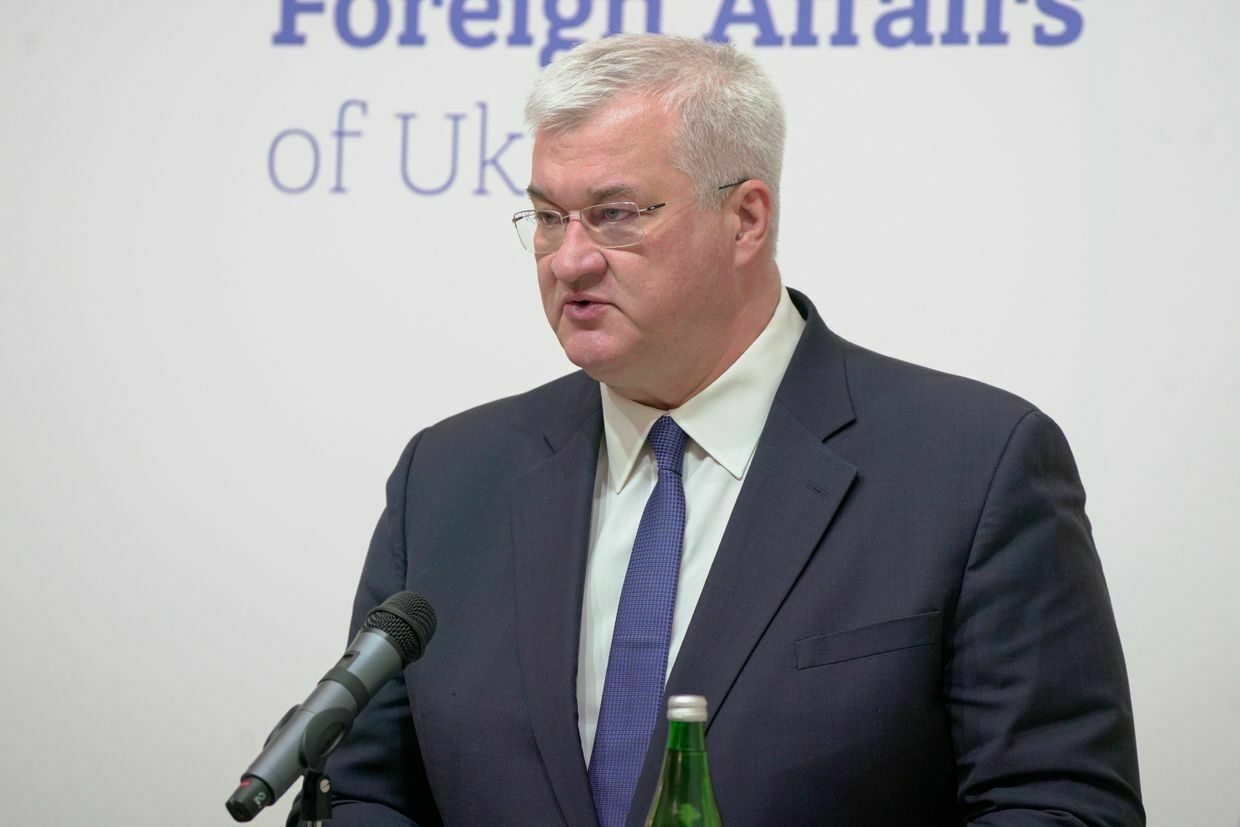
Ukraine received the text of the U.S.’s expanded deal on mineral resources on March 28 and carried out the first round of consultations with U.S. partners, Foreign Minister Andrii Sybiha said on April 1.
"Ukraine was ready to sign the previously developed framework agreement. Now we have received a proposal for development and a new text of the agreement," Sybiha said at a press conference.
“I confirm that we have begun consultations with the United States on the text of the agreement. Ukraine is determined to conclude a document that would meet the interests of both countries."
The statement confirms earlier comments made by the Kyiv Independent’s source in the Presidential Office, who said that work on the deal is ongoing and that the first round of talks took place on March 28.
Speaking to reporters aboard Air Force One on March 30, U.S. President Donald Trump accused President Volodymyr Zelensky of wanting to back out of the deal and claimed Kyiv wants to link the agreement to NATO membership.
“We are not tying (the minerals deal to NATO), it’s a misunderstanding,” the Kyiv Independent’s source commented.
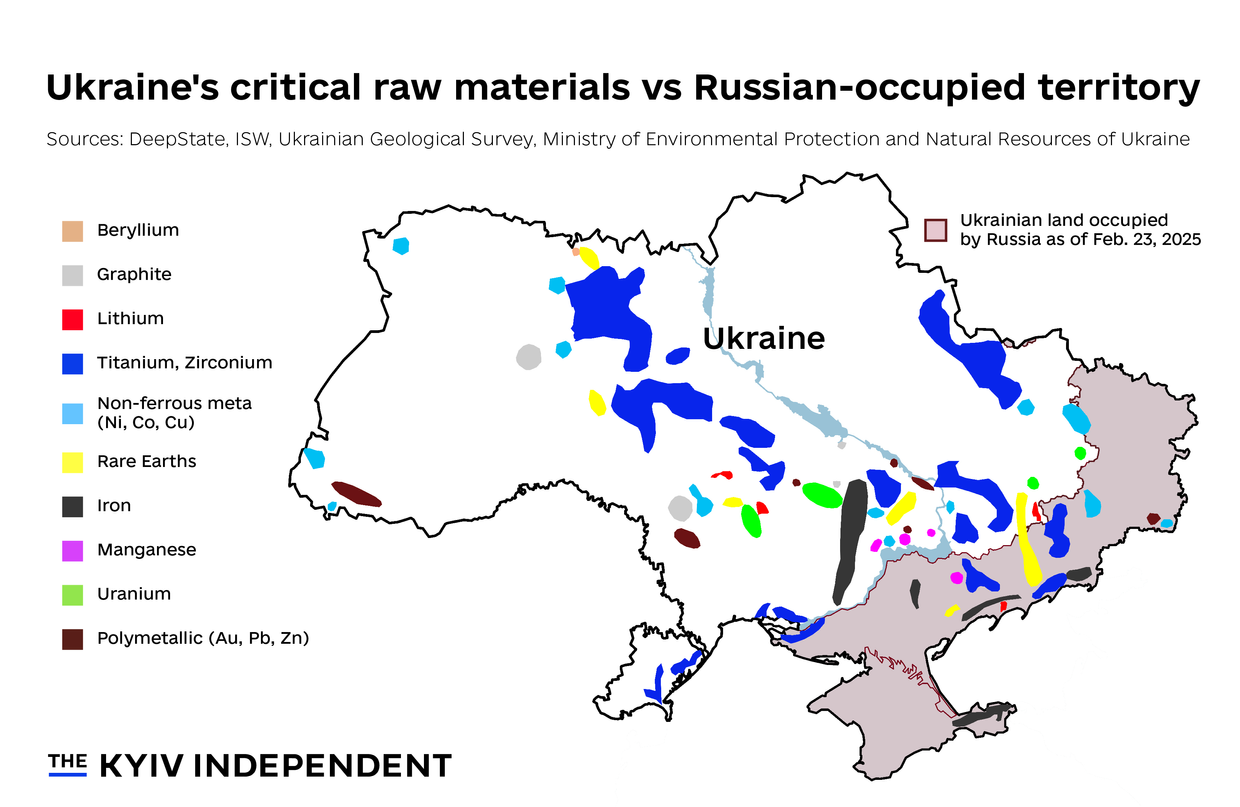
A map showing the location of critical raw materials in Ukraine. (The Kyiv Independent) According to Sybiha, Ukraine would benefit from the presence of U.S. businesses, as this would contribute to the country’s security infrastructure.
The latest version of the deal reportedly grants the U.S. unprecedented control over Ukraine’s natural resources through a joint investment.
The Trump administration has touted the minerals deal as an essential part of Ukraine’s path to peace but has failed to offer concrete security guarantees in exchange for broad access to resources.
Ukrainian media also reported that the agreement could contradict efforts to join the EU due to severe restrictions on Ukraine’s economic sovereignty. Zelensky said he would not sign a deal endangering Ukraine’s EU accession.
Kyiv and Washington were set to sign an earlier version of the agreement on Feb. 28, but the plan fell apart after a heated Oval Office dispute between Zelensky, Trump, and Vice President JD Vance.
What Russia really wants from the Black Sea ceasefire dealWith much fanfare, the U.S. on March 25 announced it had brokered an agreement between Russia and Ukraine to “eliminate the use of force” in the Black Sea after two days of talks in Saudi Arabia. But while Kyiv said it was ready to abide by it straight away,The Kyiv IndependentDominic Culverwell
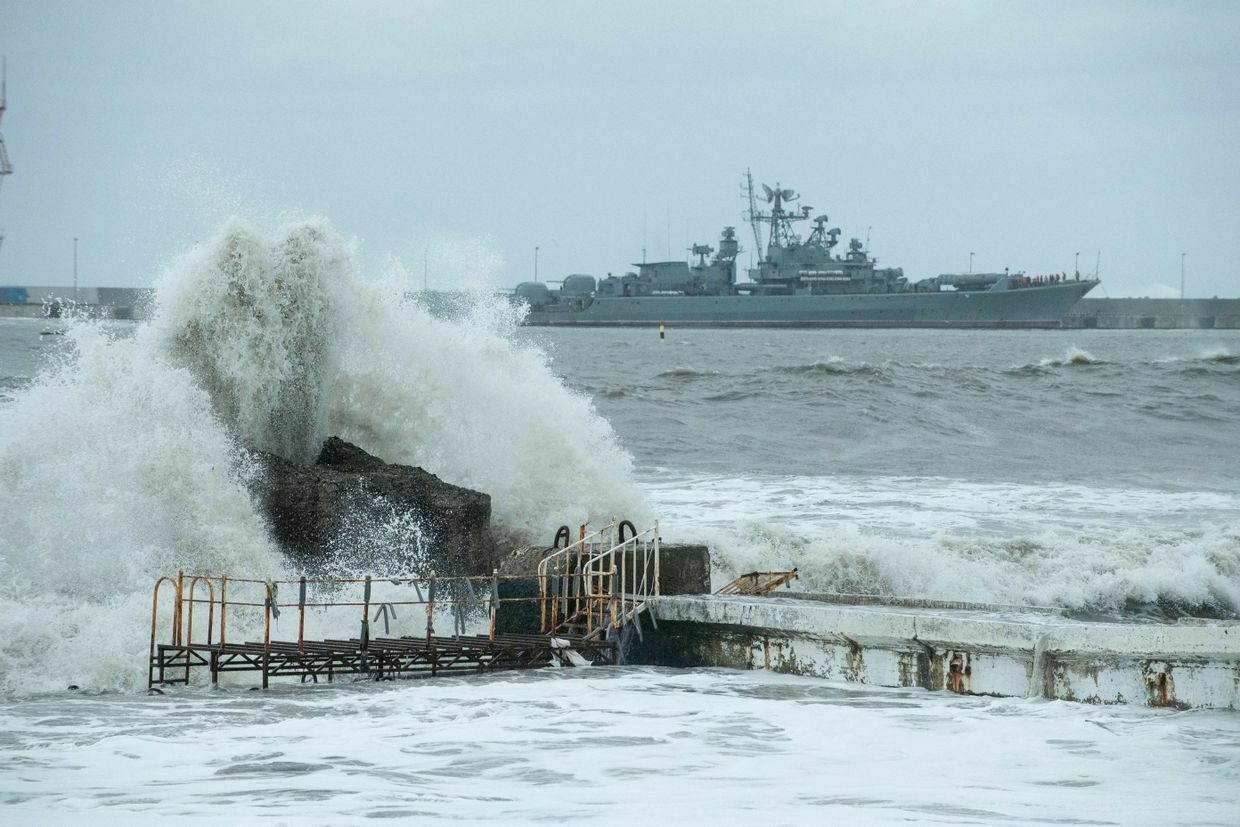
-
73% of Ukrainians say Trump is bad for Ukraine, poll shows
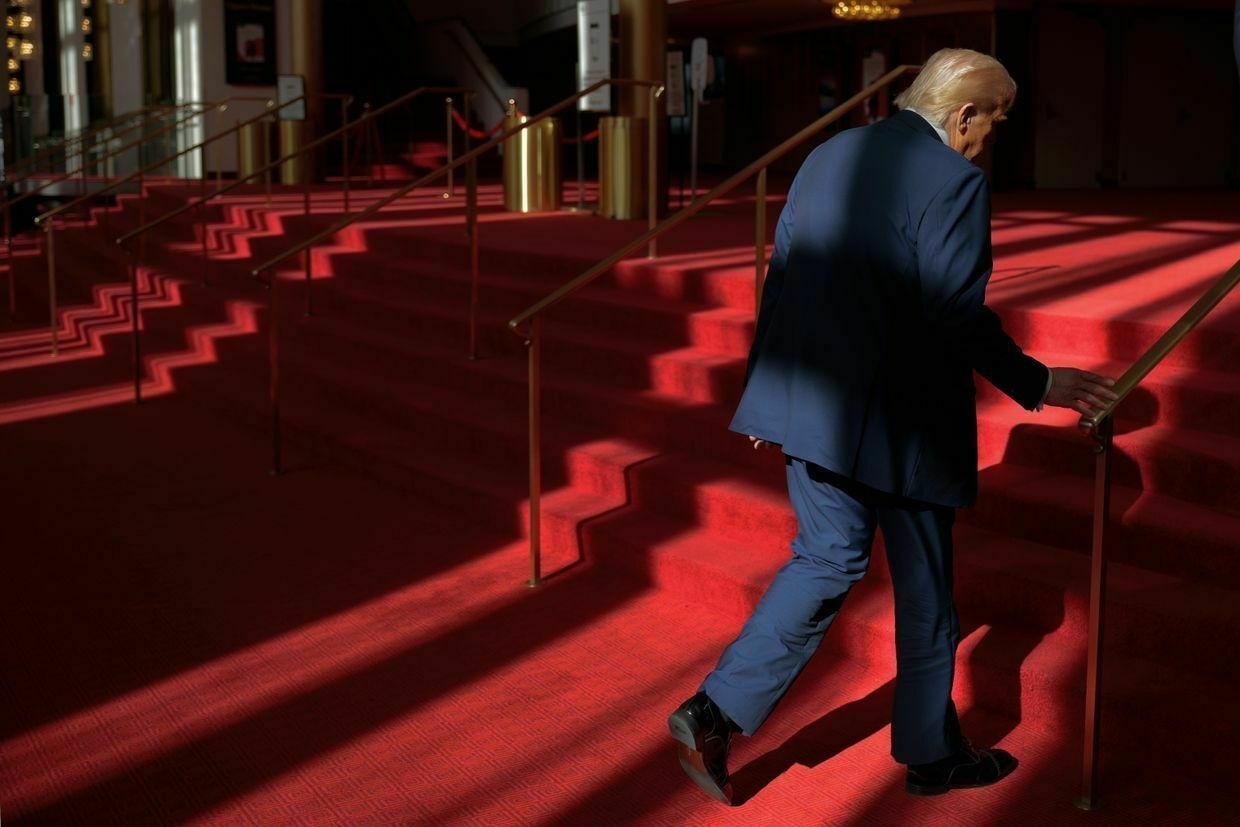
Around 73% of Ukrainians believe that U.S. President Donald Trump is bad for Ukraine, a major spike from December 2024, when only 21% saw him negatively, a survey by the Kyiv International Institute of Sociology (KIIS) published on April 1 said.
Last December, after Trump was reelected but before he took office, 54% of Ukrainians believed that the new U.S. president would have a positive impact on Ukraine. Only 19% thought so in March, KIIS said.
The Trump administration has brought a major shift to Washington’s policy on Ukraine.
Pledging to broker a swift peace deal, Trump has sought to renew ties with Russia while repeatedly praising his relationship with Russian President Vladimir Putin.
The U.S. president has also strong-armed Ukraine into ceasefire negotiations by temporarily cutting off military and intelligence support early in March before publicly berating President Volodymyr Zelensky in the Oval Office on Feb. 28.
Between March 12 and 22, 55% of Ukrainians said they expect a rather or completely unjust peace deal from Trump, a minor drop from 58% between Feb. 14 and March 4 but a significant increase from 31% in December.
In turn, 23% of Ukrainians believed that Trump would bring a just peace in December 2024, 11% between Feb. 14 and March 4, and 18% between March 12 and 22.
March 11 saw the U.S. and Ukraine agree on a 30-day ceasefire, which was perceived positively among Ukrainians, but Moscow has rejected the deal.
Russia only agreed to a partial ceasefire on strikes against energy facilities and in the Black Sea. Kyiv has already accused Russia of violating the energy ceasefire, while the future of the Black Sea ceasefire is in doubt as Moscow has linked it to the lifting of some Western sanctions.
Ukrainians now see Europe as a more reliable ally than the U.S. While 64% of respondents said they think European partners want Ukraine to achieve peace on acceptable terms, only 24% think this about the U.S.
Some 67% of Ukrainians believe that the U.S. is tired of supporting Ukraine and is pushing for concessions on Kyiv’s part.
The survey reflects the shifting mood in Ukraine regarding Trump’s presidency. Earlier research showed that before Jan. 20, many Ukrainians hoped for Trump to be more decisive in pressuring Russia toward a just peace than his predecessor, former President Joe Biden.
The Biden administration donated more than $100 billion in military and economic support to Ukraine during the full-scale war. At the same time, the ex-president’s policy has been criticized as overly cautious and self-restricting.
Trump has not approved any additional aid packages, only allowing the continued flow of the previously approved support. His administration also gutted various programs that Ukraine benefited from, from USAID programs funding energy infrastructure and civil society to a project tracking abducted Ukrainian children.
Unless you act, ‘it’s just rhetoric’ — Baltic states skeptical of Western European leadershipAs the U.S. chooses an increasingly hostile posture toward Europe, the U.K. and France have been gearing up to lead the continent’s defense without Washington. French President Emmanuel Macron has coined the term “strategic autonomy,” which envisions a self-sufficient Europe that can defend itself…The Kyiv IndependentMartin Fornusek
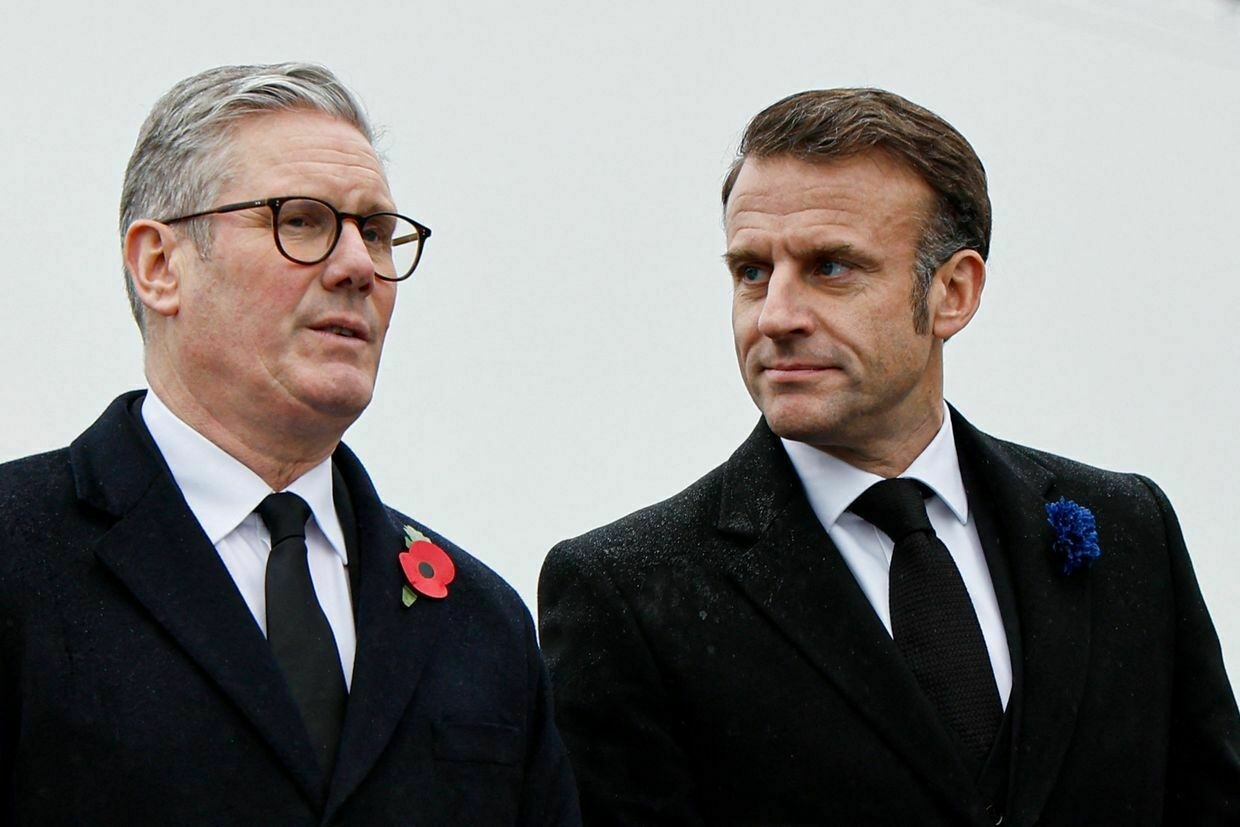
-
Zelensky's party's parliamentary leader denies preparation for elections
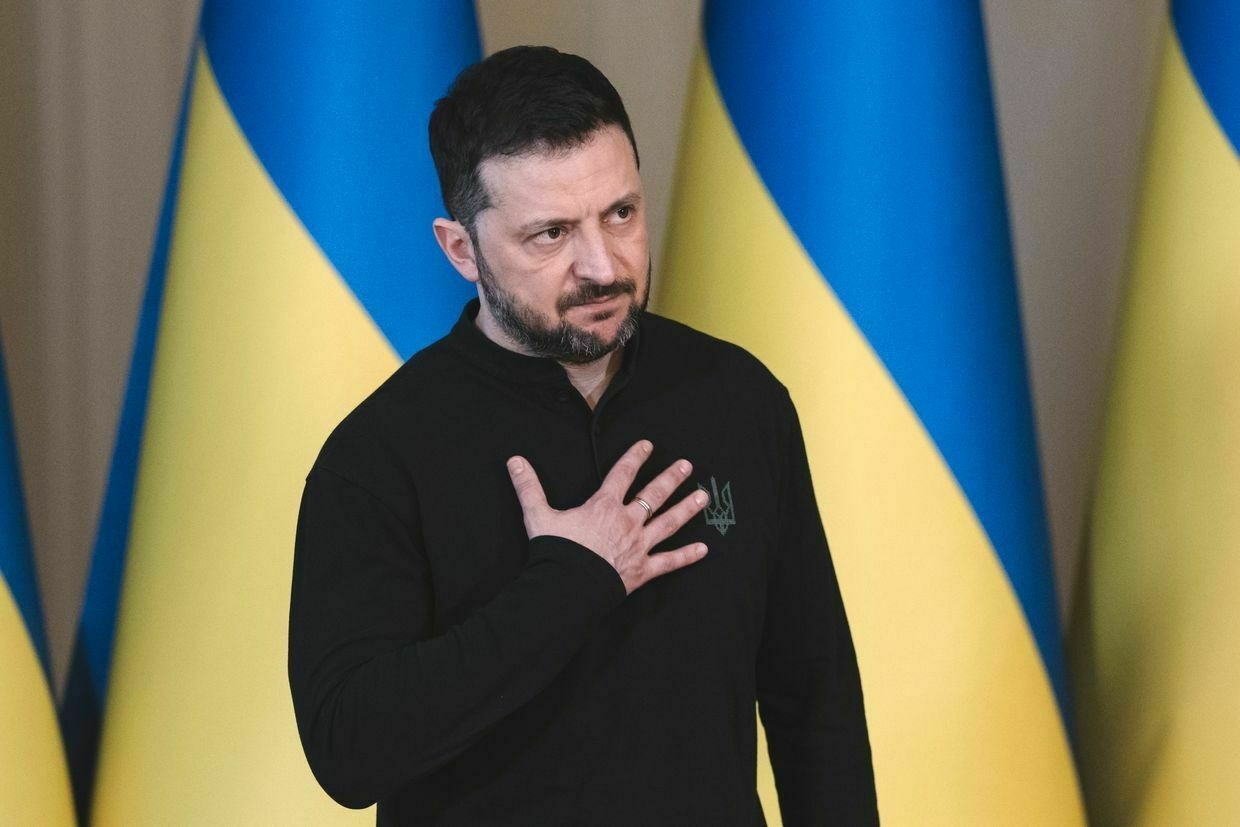
There are no ongoing preparations for elections, as all parties agree that the next vote can be held only after the lifting of martial law, Davyd Arakhamia, the parliamentary leader of President Volodymyr Zelensky’s Servant of the People party, told Suspilne on March 31.
Arakhamia’s statement comes after the Economist reported that Ukraine’s elections could be held in July 2025, and Zelensky allegedly called a meeting on the matter.Arakhamia said that he did not take part in such a meeting and claimed that it “did not happen at all."
“No elections are being prepared, no preparations are underway. All parliamentary parties and groups have agreed that elections should be held six months after the lifting of martial law, " Arakhamia said. “Our position has not changed since then."
Serhii Dubovyk, deputy head of the Central Election Commission, told Suspilne that preparations for elections after the war will require the adoption of a law on the specifics of post-war elections.
According to existing legislation, parliamentary elections should be held 60 days after the end of martial law, and presidential elections 90 days after. Yet, this period will not be enough to prepare for the elections, Dubovyk added.
Ukraine’s Constitution prohibits elections under martial law, which has been in place since the onset of Russia’s full-scale war against Ukraine in February 2022.
Russia has widely used the claim that Zelensky is illegitimate in its propaganda to discredit the Ukrainian government. The false claim is based on the premise that Zelensky’s first term in office was originally meant to end on May 20, 2024.
Russia’s full-scale invasion and the subsequent declaration of martial law in Ukraine has meant elections have been impossible to hold, and his term has been extended, something constitutional lawyers say is allowed under Ukrainian law.
U.S. President Donald Trump initially echoed the Kremlin’s narrative, denouncing Zelensky as a “dictator without elections.” He then seemingly walked back on the statement, even voicing displeasure wth Russian President Vladimir Putin over the latter’s attacks on Zelensky’s credibility.
‘Trump looks at Putin as a friend’ — Expert negotiator dissects Ukraine-Russia ceasefire talksU.S. President Donald Trump’s stated goal of bringing a swift end to Russia’s full-scale invasion of Ukraine is looking evermore distant, with only two tentative partial ceasefires to show after several rounds of talks. Ukraine has already agreed to a U.S.-proposed full 30-day ceasefire, saying on…The Kyiv IndependentChris York
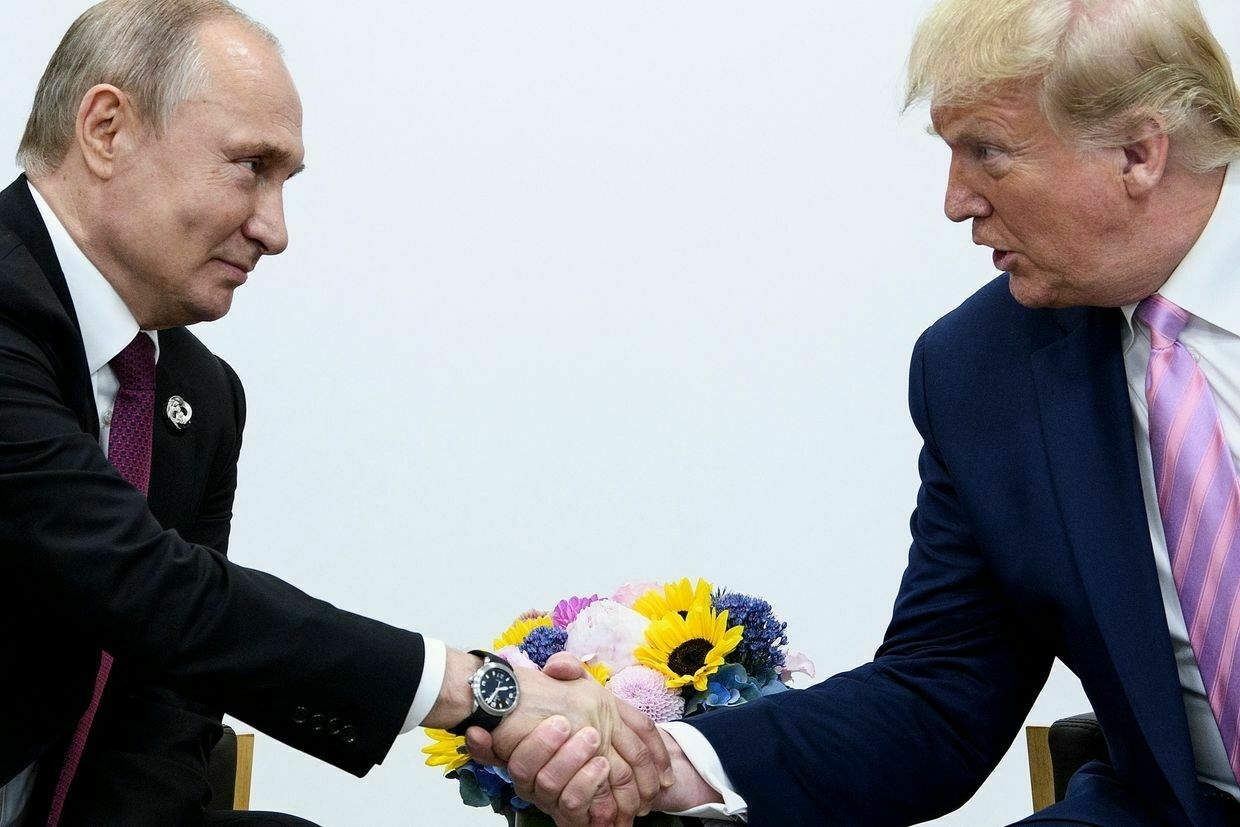
-
Rubio to discuss Ukraine, NATO in Brussels this week
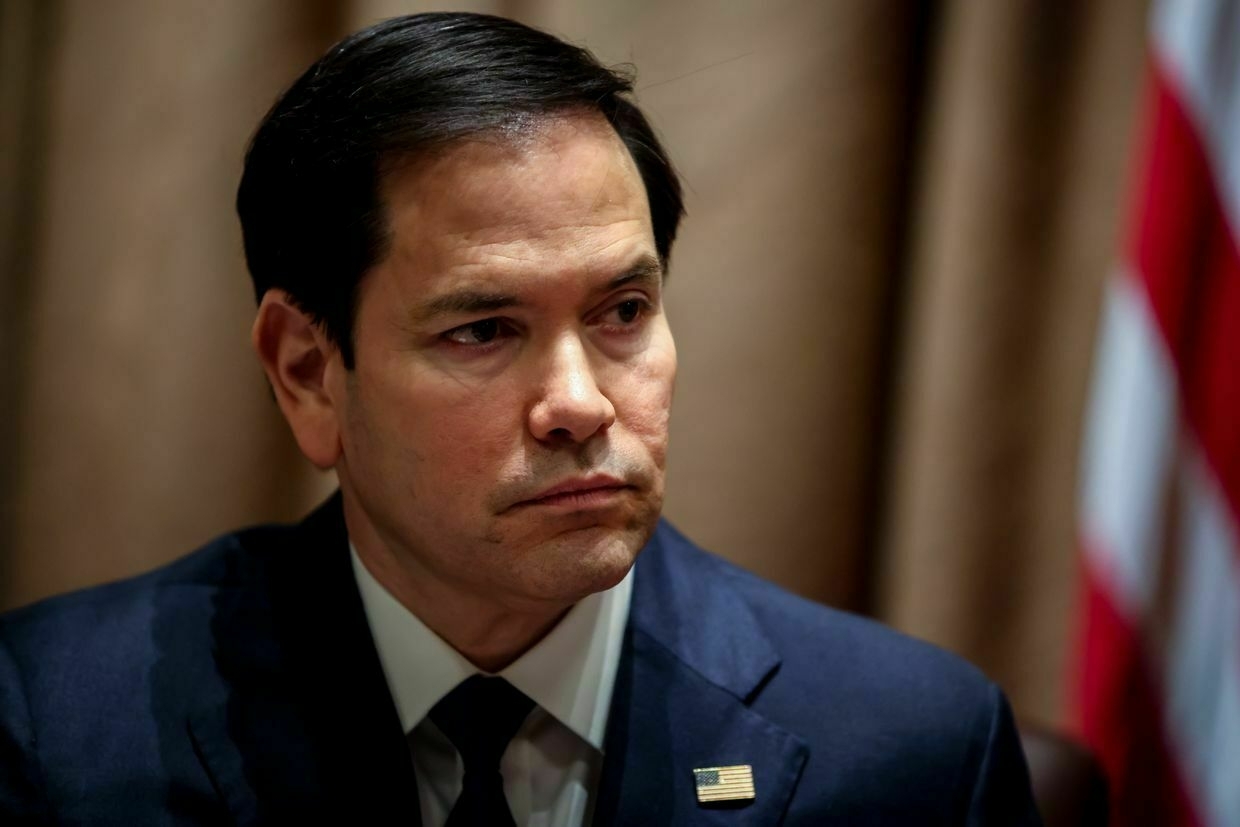
U.S. Secretary of State Marco Rubio will travel to Brussels between April 2 and 4 to discuss a path toward peace in Ukraine and NATO’s priorities, the State Department announced on March 31.
“In Brussels, Secretary Rubio will attend the NATO Foreign Ministers Meeting to discuss security priorities for the Alliance, including increased Allied defense investment and securing lasting peace in Ukraine,” State Department spokesperson Tammy Bruce said in a statement.
Rubio’s visit comes during an unprecedented time for the alliance, as U.S. President Donald Trump has publicly questioned the collective defense principle and threatened to annex Greenland from a fellow NATO member, Denmark.
The Trump administration has also brought a major shift to Washington’s policy on Ukraine. Pledging to broker a swift peace deal, the U.S. has strong-armed Kyiv by temporarily cutting off military aid while exerting little pressure on Moscow, save for threatening tariffs on Russian oil.
Trump has not approved any new military aid packages for Ukraine, only permitting the continued flow of materiel approved under his predecessor, former President Joe Biden.
Washington also made it clear it expects European countries to take responsibility for their own security and Ukraine, urging them to increase their defense spending targets to 5% of GDP.
“Secretary Rubio will also discuss the shared threat of China to the Euro-Atlantic and Indo-Pacific Alliances at a NATO session with representatives of the Indo-Pacific Partners,” Bruce said.
“Lastly, the Secretary will discuss plans for The Hague Summit this summer."
Unless you act, ‘it’s just rhetoric’ — Baltic states skeptical of Western European leadershipAs the U.S. chooses an increasingly hostile posture toward Europe, the U.K. and France have been gearing up to lead the continent’s defense without Washington. French President Emmanuel Macron has coined the term “strategic autonomy,” which envisions a self-sufficient Europe that can defend itself…The Kyiv IndependentMartin Fornusek
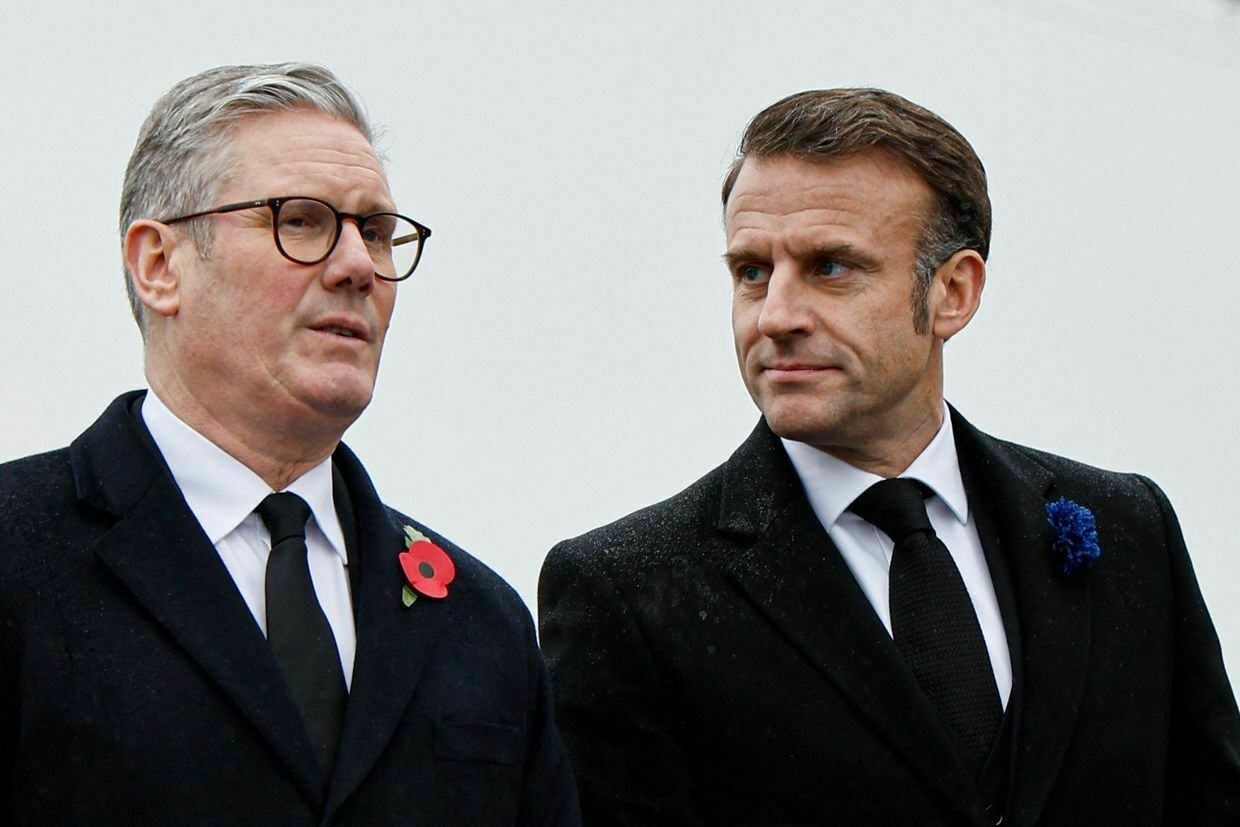
-
Waltz held sensitive talks on Russia, Ukraine on Signal, WSJ reports
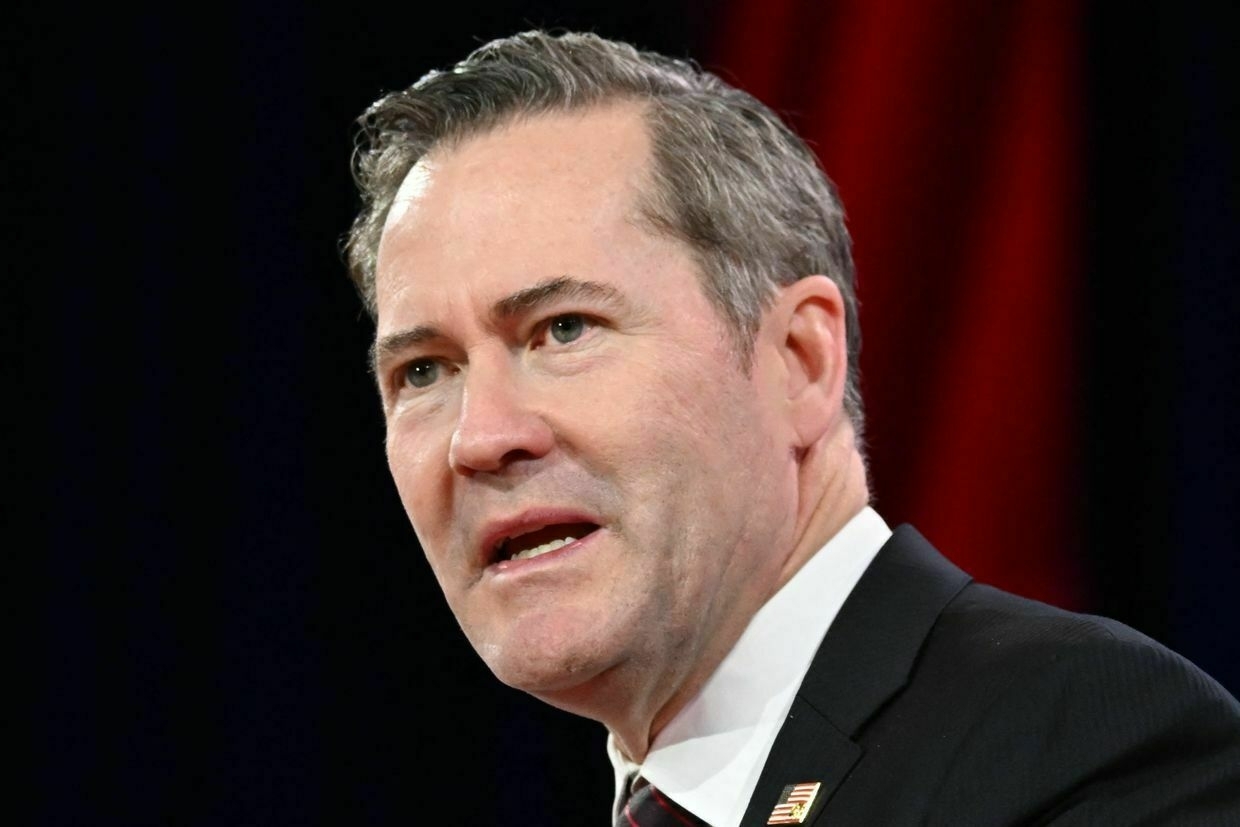
U.S. National Security Advisor Mike Waltz has created and hosted multiple sensitive national-security conversations on Signal with cabinet members, including those on peace between Russia and Ukraine, the Wall Street Journal (WSJ) reported on March 30, citing undisclosed U.S. officials.
The news comes after Waltz reportedly caused a leak of sensitive information by adding Jeffrey Goldberg, editor-in-chief of the Atlantic magazine, to a Signal chat room discussing a future U.S. attack on Yemen.
The Signal incident has undermined Waltz’s credibility with U.S. President Donald Trump, while the national security advisor continues to walk a fine line, multiple media outlets wrote.
According to two U.S. officials, Waltz also discussed sensitive topics, such as peace between Russia and Ukraine and military operations, on Signal, the WSJ reported. The officials declined to say whether any classified information was posted in those chats.
Waltz is a key member of the U.S. team seeking to broker peace between Ukraine and Russia. He participated in talks with the two countries' delegations in Saudi Arabia in February and March.
Goldberg received a Signal message from a user named “Michael Waltz” on March 11 — four days before the U.S. military strike on Yemen. After accepting the request, he found himself in a chat named “Houthi PC small group” (PC referring to the Principals Committee, a U.S. national security decision-making body).
The chat reportedly included 18 accounts with names corresponding to top U.S. officials, including Defense Secretary Pete Hegseth, Secretary of State Marco Rubio, Director of National Intelligence Tulsi Gabbard, CIA Director John Ratcliffe, and Trump advisor Steve Witkoff.
Messages within the chat detailed the planning and discussion of the March 15 strike on Yemen, leading Goldberg to conclude that the group was real.
Russia’s Black Sea ceasefire demands are a ‘fool’s errand’ for Trump, major blow for UkraineWith much fanfare, the U.S. on March 25 announced it had brokered an agreement between Russia and Ukraine to “eliminate the use of force” in the Black Sea after two days of talks in Saudi Arabia. But while Kyiv said it was ready to abide by it straight away,The Kyiv IndependentDominic Culverwell
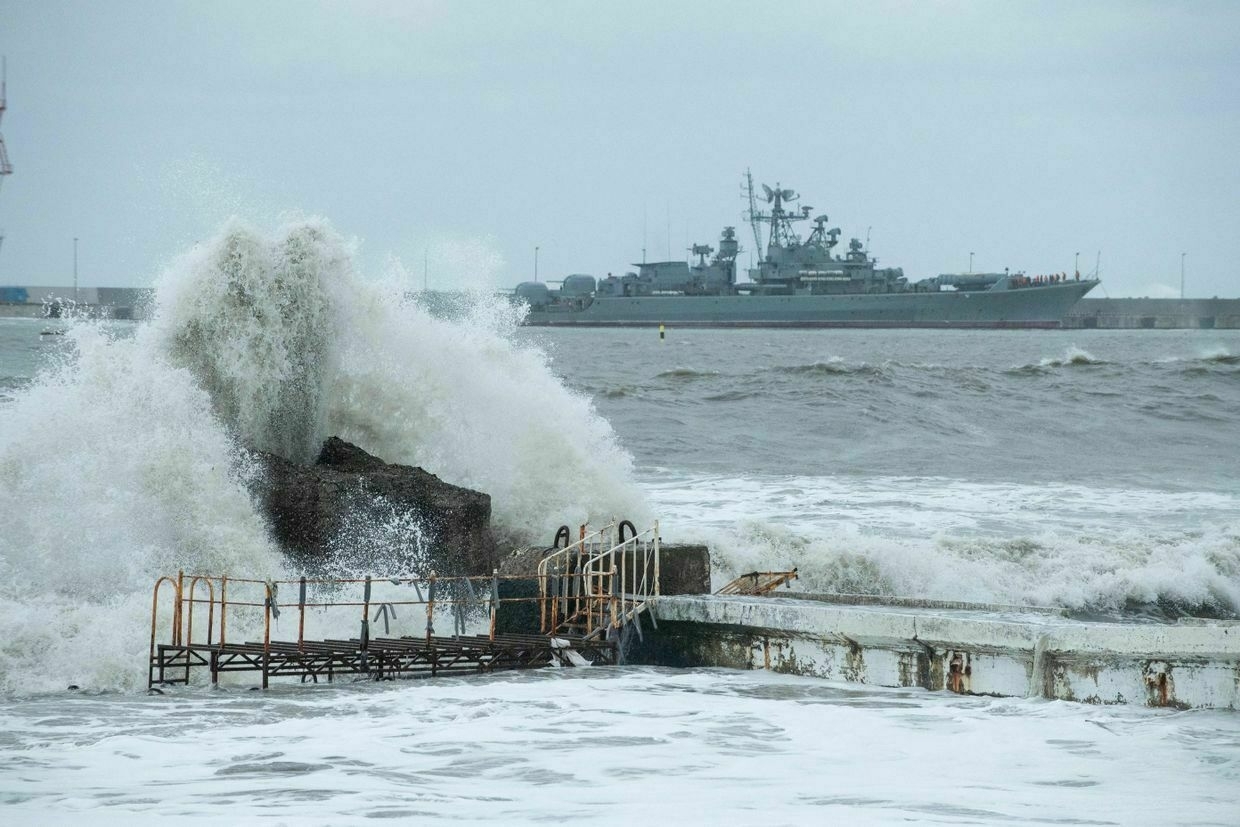
-
Russia's calls for transitional Ukrainian government 'not appreciated' by Trump, State Department says
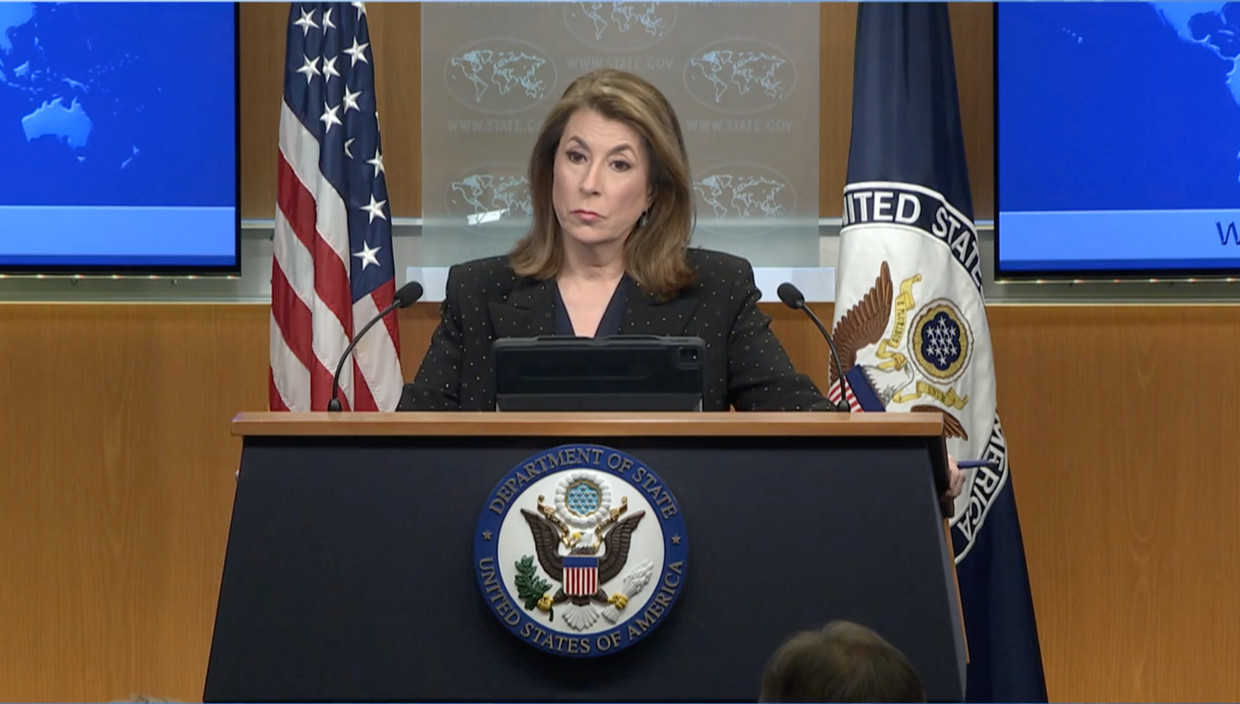
Russian President Vladimir Putin’s calls to establish a temporary government in Ukraine to replace President Volodymyr Zelensky were “not appreciated” by U.S. President Donald Trump, a State Department spokesperson said on March 31.
“There was an idea from Russia about a temporary administration that was not appreciated by the president,” State Department Spokeswoman Tammy Bruce told reporters during a press briefing. “Ukraine is… a constitutional democracy. Governance in Ukraine is determined by its constitution and the Ukrainian people."
The State Departments comments on the matter comes just one day after Trump said that he was “pissed off” and “very angry” regarding Putin’s fixation over Zelensky’s presidency.
Putin suggested on March 28 that a transitional administration, overseen by the U.N. and several countries, could be formed in Ukraine to organize elections — a proposal that the White House immediately dismissed.
“We are committed to the diplomacy necessary to achieve a full ceasefire and to bring the parties to the negotiating table for a final and lasting settlement. President Trump has made clear that Russia and Ukraine need to move to a full ceasefire now. None of that has changed,” the spokesperson said.
Ahead of formal peace talks, Putin reiterated his meritless claim that Zelensky is “illegitimate” and said that he has no right to sign any documents in potential peace negotiations.
As ceasefire negotiations continue to drag on, Trump again threatened on March 31 to impose secondary tariffs on Russian oil exports if Russian President Vladimir Putin does not “make a deal” to end the war in Ukraine.
“I want to make sure that he follows through, and I think he will. I don’t want to go secondary tariffs on his oil. But I think, you know, it’s something I would do if I thought he wasn’t doing the job,” Trump said.
White House Press Secretary Karoline Leavitt said on March 31 that Trump has “expressed displeasure” with both Russian and Ukrainian leaders amid efforts to secure a ceasefire in the full-scale war — with Trump expressing his frustration about his ongoing effort to reach a minerals deal with Ukrainian officials.
Trump again threatens oil tariffs against Russia if peace deal not reachedU.S. President Donald Trump threatened on March 31 to impose secondary tariffs on Russian oil exports if Russian President Vladimir Putin does not “make a deal” to end the war in Ukraine.The Kyiv IndependentDmytro Basmat
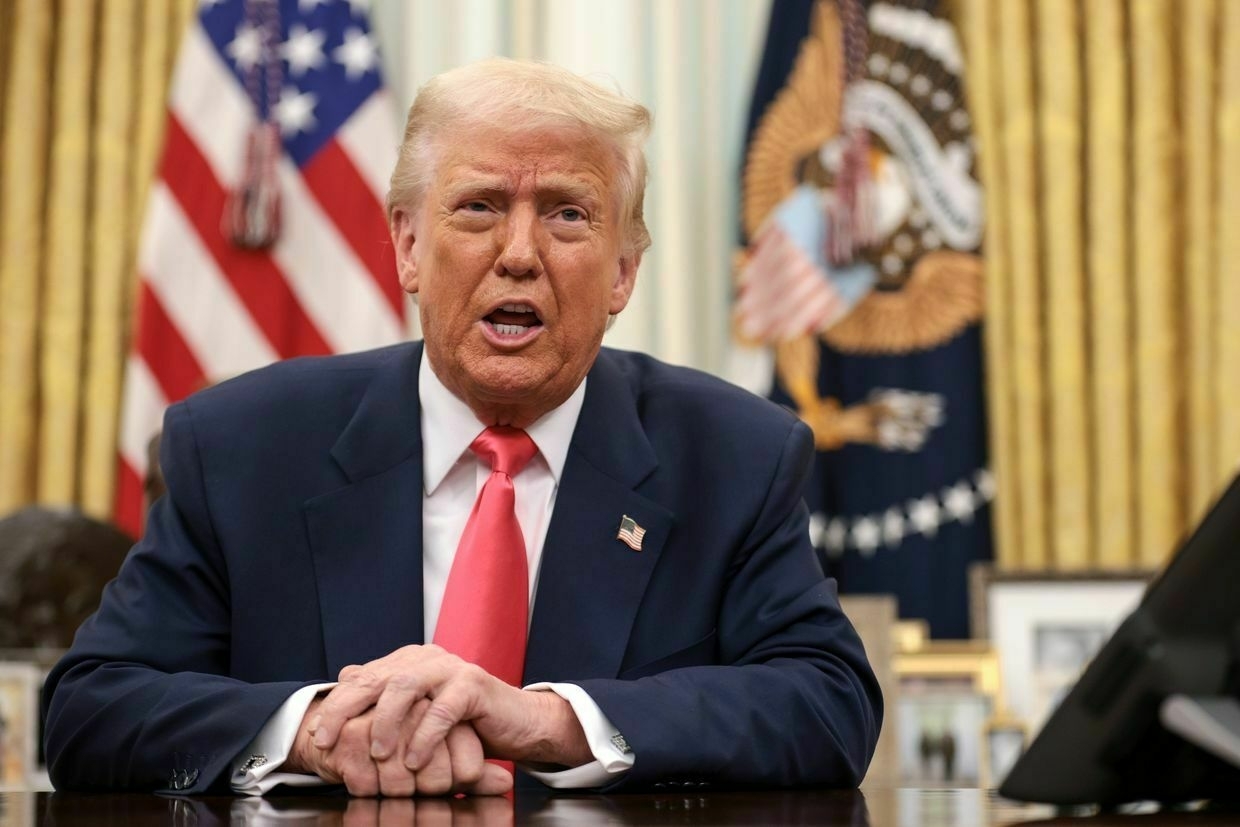
-
Trump again threatens oil tariffs against Russia if peace deal not reached
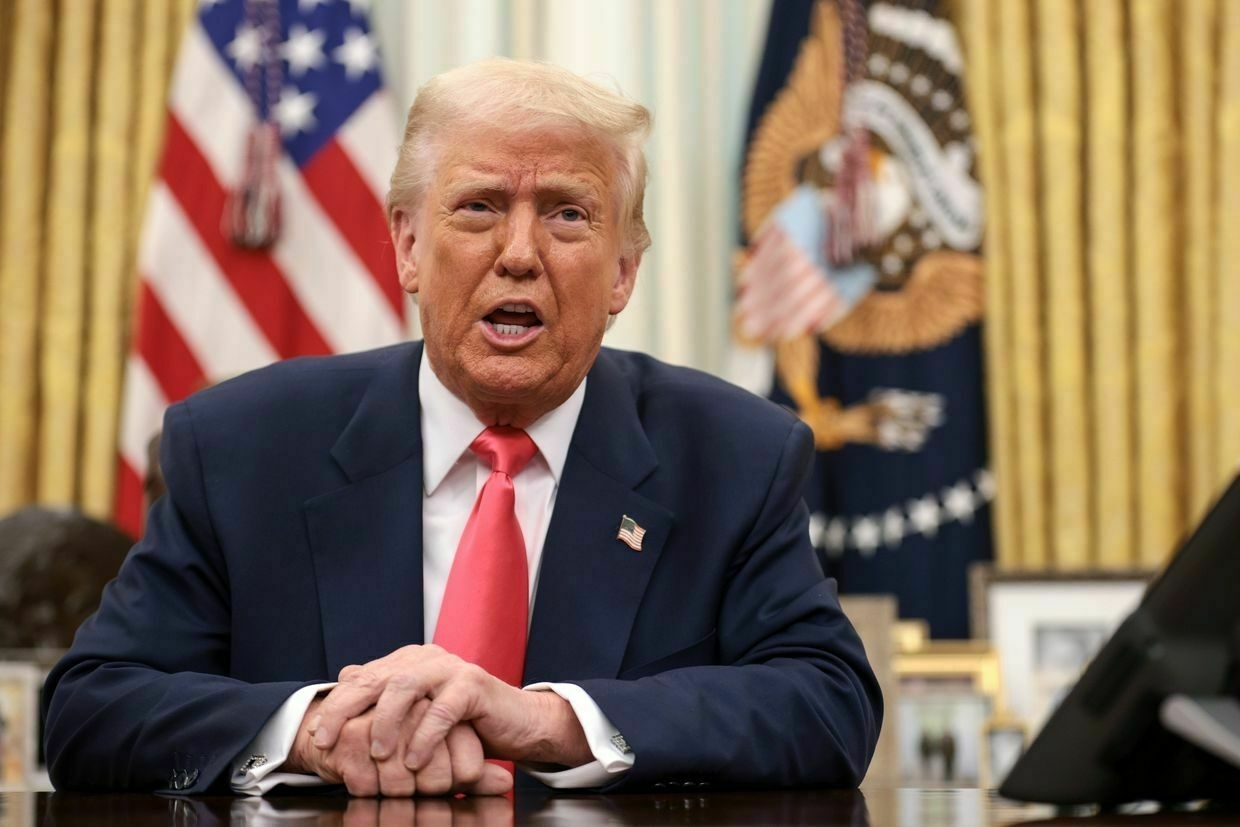
U.S. President Donald Trump threatened on March 31 to impose secondary tariffs on Russian oil exports if Russian President Vladimir Putin does not “make a deal” to end the war in Ukraine.
“I want to see (Putin) make a deal, so that we stop Russian soldiers and Ukrainian soldiers and other people from being killed,” Trump told reporters in the Oval Office. “I want to make sure that he follows through, and I think he will. I don’t want to go secondary tariffs on his oil. But I think, you know, it’s something I would do if I thought he wasn’t doing the job."
Trump’s comments on Russia come just a day after Trump told NBC News that he was “pissed off” and “very angry” regarding Putin’s fixation over the Russian president’s latest demand for a transitional government that would replace President Volodymyr Zelensky.
Trump previously threatened to impose additional tariffs against Russia, threatening a “25% tariff on all oil, a 25- to 50-point tariff on all oil."
U.S. and Russian trade is at an all-time low due to sanctions imposed by the U.S. and other Western allies due to Russia’s full-scale war against Ukraine. The Trump administration has been expanding diplomacy with Moscow, however, and has said it is open to exploring a trade partnership.
White House Press Secretary Karoline Leavitt said on March 31 that Trump has “expressed displeasure” with both Russian and Ukrainian leaders amid efforts to secure a ceasefire in the full-scale war.
During his press conference in the Oval Office, Trump also expressed frustration with ongoing efforts to reach a minerals deal with Ukrainian officials.
“I haven’t spoken to (Ukrainian officials) yet, but through you, I heard that they now say, ‘Well, I’ll only do that deal if we get into NATO or something to that effect. Well, that was never, number one, discussed. Number two, I think it’s going to be very — long before Putin, they said you’re not going into NATO,” Trump told reporters.
“That’s probably the reason the war started, actually,” Trump said, repeating Kremlin narratives that justify Russia’s invasion of Ukraine.
On March 31, a source in Ukraine’s Presidential Office told the Kyiv Independent that Ukraine’s NATO membership is not a part of the discussion around the minerals deal.
“We are not tying (the minerals deal to NATO), it’s a misunderstanding,” the source said.
Trump not pleased with Russia or Ukraine, White House saysThe U.S. president “has expressed his displeasure with comments that have been made by leaders of both sides of this conflict,” White House Press Secretary Karoline Leavitt told reporters on March 31.The Kyiv IndependentAbbey Fenbert
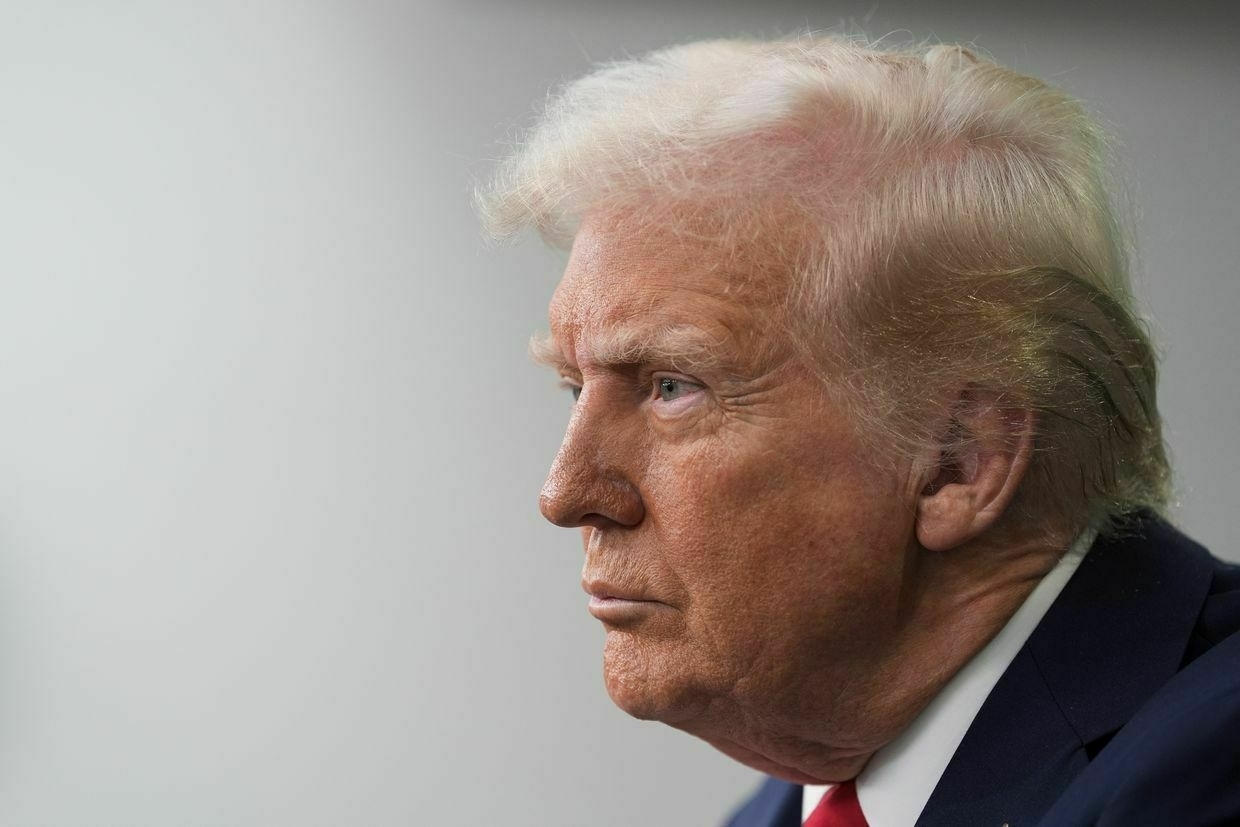
-
Zelensky, Starmer plan meeting on Ukraine peacekeeping force
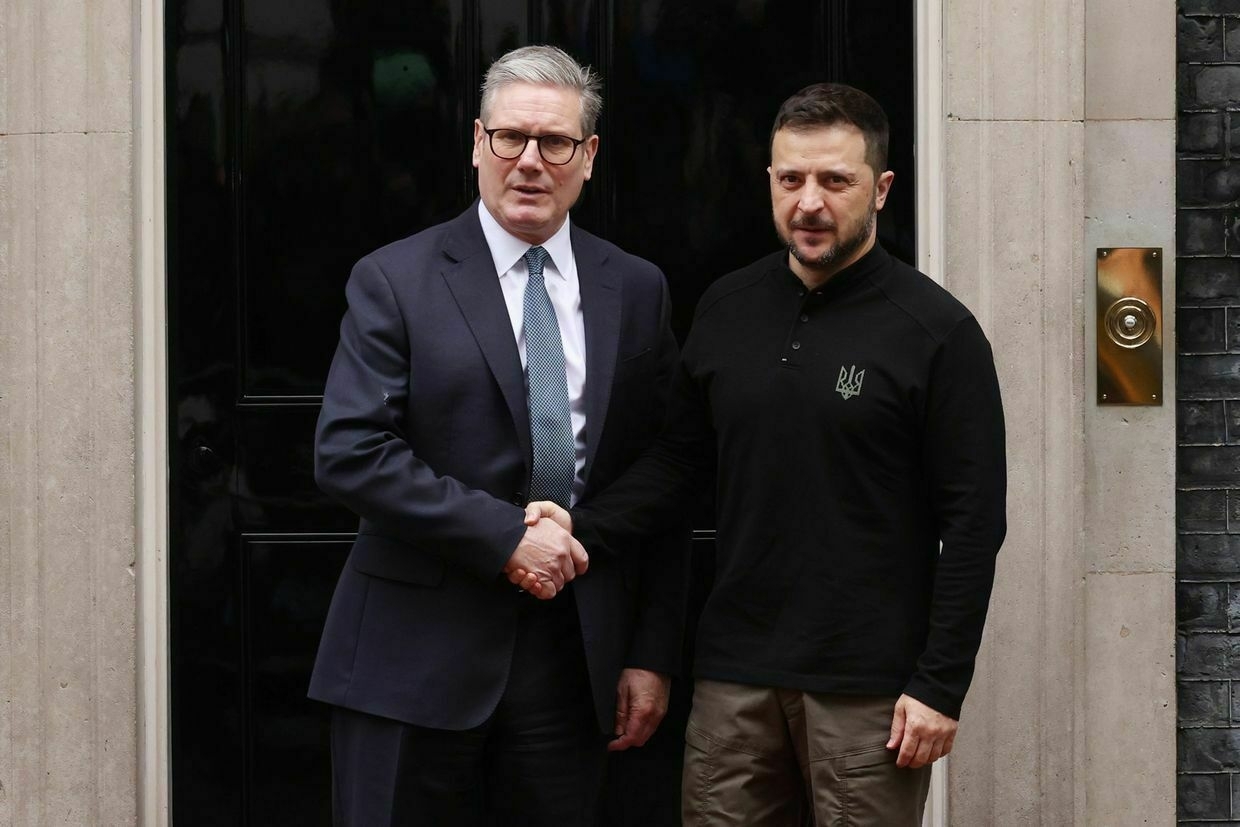
President Volodymyr Zelensky spoke with U.K. Prime Minister Keir Starmer about coordinating steps for Ukraine’s security, including a future meeting about peacekeeping troops, in a phone call on March 31.
Starmer, along with French President Emmanuel Macron, has been leading Europe’s efforts to provide security guarantees for Kyiv in anticipation of a future ceasefire deal with Russia.
In a phone call March 31, Zelensky and Starmer discussed plans to convene military representatives from the “coalition of the willing,” a group of countries that have pledged to contribute peacekeeping troops and other security assurances, at a meeting in Ukraine later this week.
“We are preparing a meeting between our military representatives for the preparation of contingents,” Zelensky said via his official Telegram channel.
Starmer also shared with Zelensky details about his recent conversation with U.S. President Donald Trump. Starmer and Trump agreed to keep up “collective pressure” on Russian President Vladimir Putin during a phone call on March 30.
“We appreciate the U.K.’s position regarding pressure on Russia — pressure must be strong enough to prevent the Russians from expanding this war,” Zelensky said.
“All the more so now, as Moscow blatantly makes a mockery of our partners' efforts to advance a peace agenda — with constant new drone attacks and relentless, brutal shelling.”
Starmer has said that the coalition of the willing will include “planes in the air and boots on the ground” to reinforce the Ukrainian military following a ceasefire agreement. While Downing Street announced on March 17 that the plan had moved into the “operational phase,” both U.K. and U.S. officials have criticized the idea as underdeveloped and unrealistic.
Unless you act, ‘it’s just rhetoric’ — Baltic states skeptical of Western European leadershipAs the U.S. chooses an increasingly hostile posture toward Europe, the U.K. and France have been gearing up to lead the continent’s defense without Washington. French President Emmanuel Macron has coined the term “strategic autonomy,” which envisions a self-sufficient Europe that can defend itself…The Kyiv IndependentMartin Fornusek
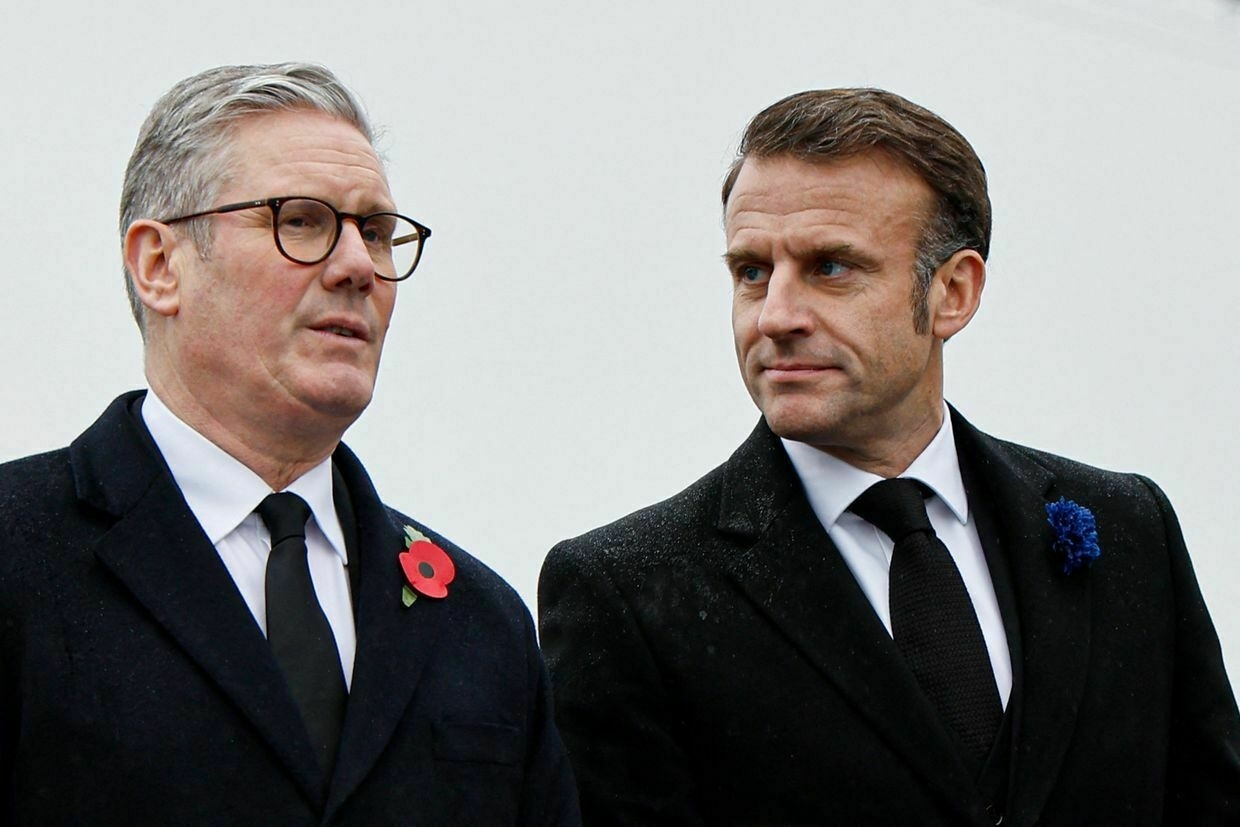
-
Trump not pleased with Russia or Ukraine, White House says
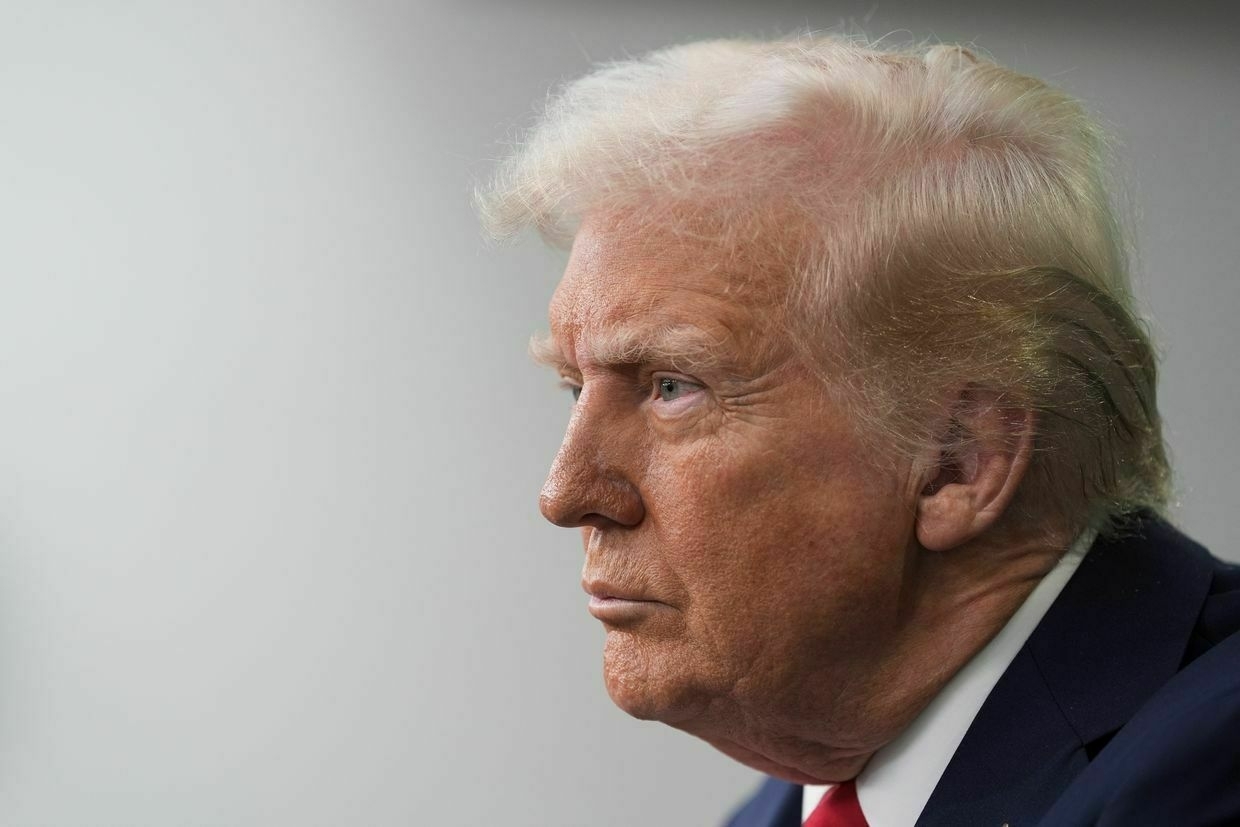
U.S. President Donald Trump has “expressed displeasure” with both Russian and Ukrainian leaders amid efforts to secure a ceasefire in the full-scale war, White House Press Secretary Karoline Leavitt said on March 31.
Leavitt’s comments come a day after Trump said he was “pissed off” at Russian President Vladimir Putin for continuing to disparage President Volodymyr Zelensky. On the same day, Trump warned that Zelensky would face “big problems” with the U.S. if he did not sign a critical minerals deal.
“The president is working incrediby hard to get a peace deal done between Russia and Ukraine,” Leavitt told reporters on March 31.
“And he has expressed his displeasure with comments that have been made by leaders of both sides of this conflict. He has expressed what he believes needs to take place in order to see this conflict come to an end. He contines to work very hard on it and our teams continue to be engaged."
After saying he was angry with Putin and threatening to impose additional economic penalties on Russia, Trump later softened his rhetoric, telling reporters aboard Air Force One that he and Putin have “always gotten along well."
Trump did not name a specific date by which Moscow must agree to a complete ceasefire in Ukraine, but said there was a “psychological deadline” for such a deal.
Ukraine has already agreed to a U.S. proposal for a total 30-day ceasefire, while Russia continues to refuse. Kyiv has accused Moscow of violating the partial ceasefire covering strikes on energy facilities and in the Black Sea.
Trump has threatened additional tariffs and sanctions against Russia several times in the past months but has largely avoided taking the step. Instead, the administration has exerted significant pressure on Ukraine in negotiations, including by temporarily cutting off military and intelligence support.
Ukraine-US talks on minerals deal ongoing, not tied to NATO membership, source saysUkrainian and U.S. government and legal teams continue discussions on the mineral deal, a source in the Presidential Office told the Kyiv Independent on March 31 as U.S. President Donald Trump is escalating his rhetoric on the agreement.The Kyiv IndependentOleksiy Sorokin
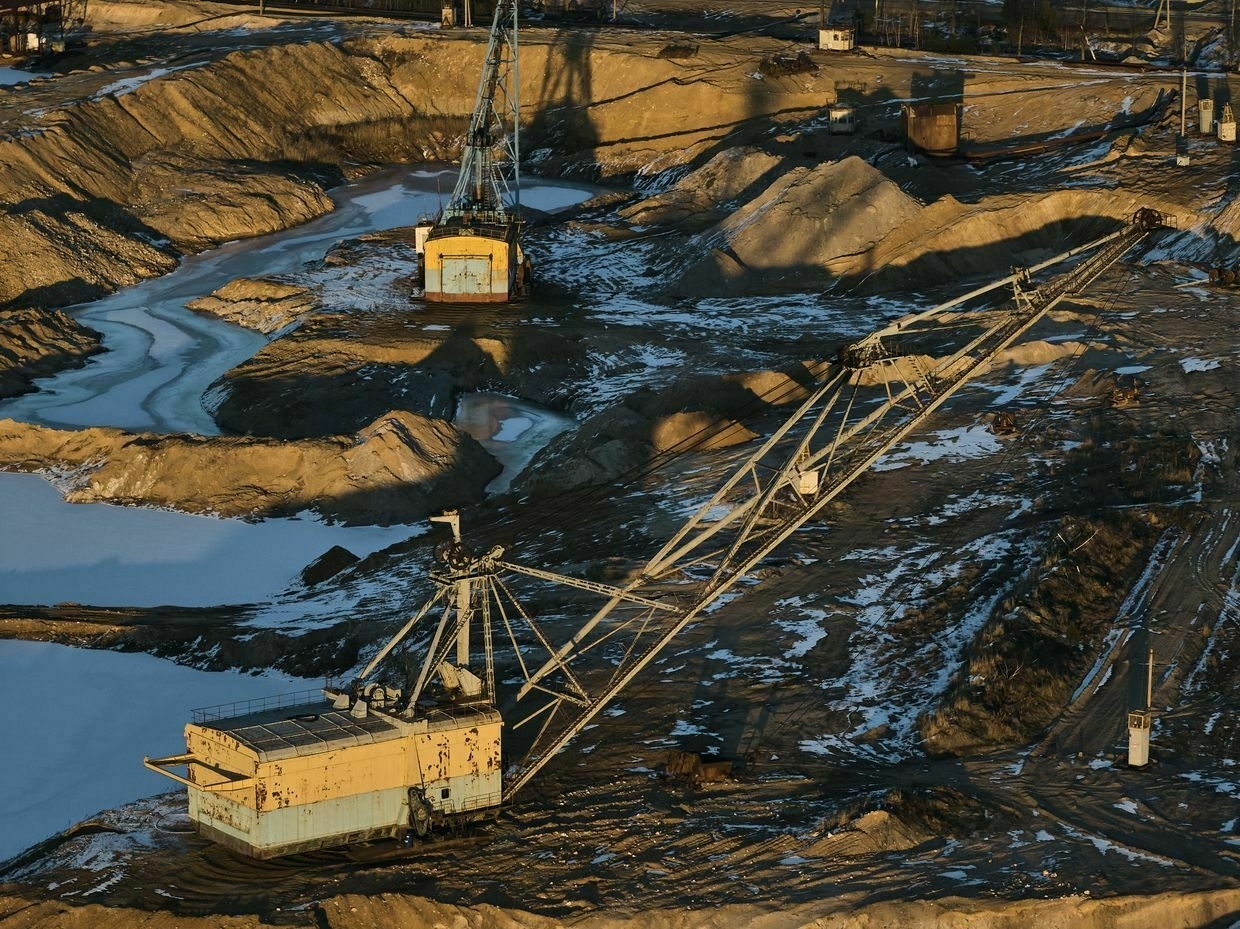
-
Ukraine war latest: There's 'psychological deadline' for Putin to agree to Ukraine ceasefire, Trump says
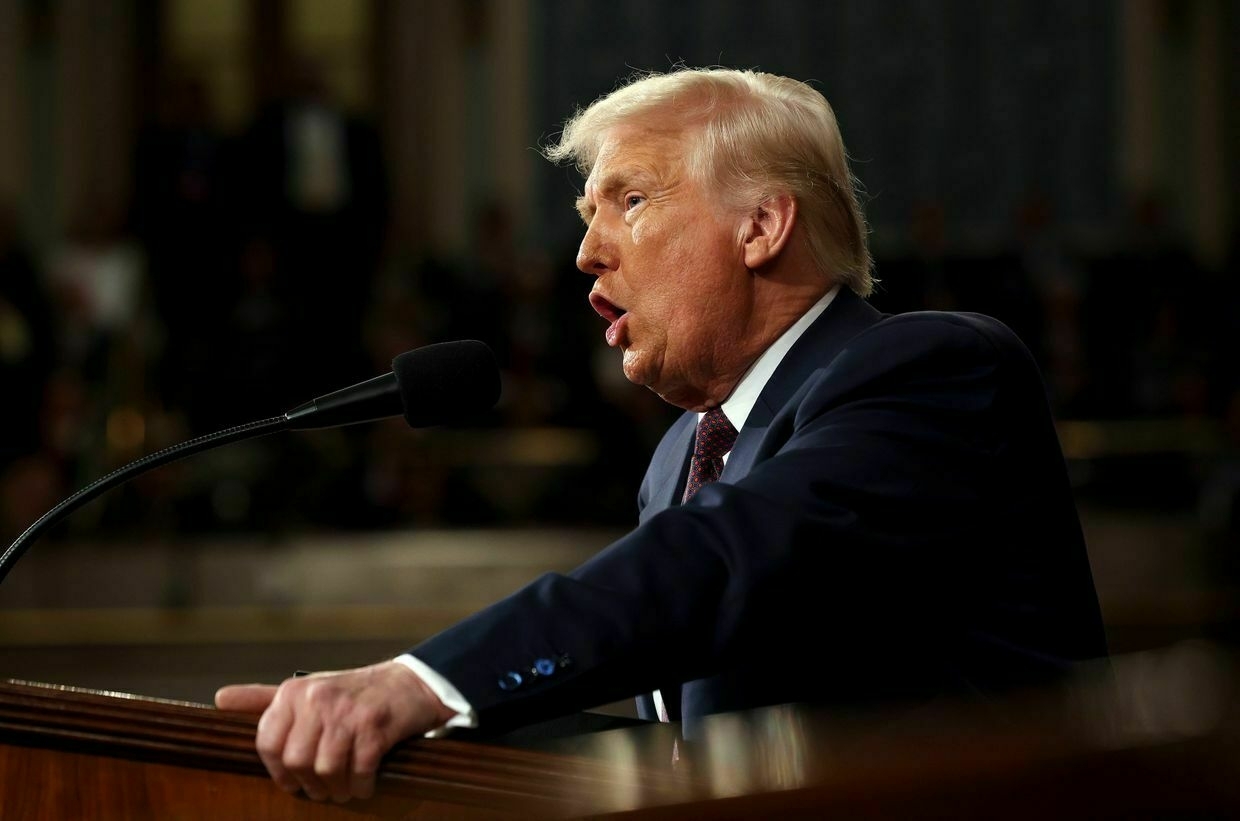
Key developments on March 31:
- There’s ‘psychological deadline’ for Putin to agree to Ukraine ceasefire, Trump says
- Kremlin says it remains open to US talks despite Trump’s reported anger at Putin
- Ukraine-US talks on minerals deal ongoing, not tied to NATO membership, source says
- Russia trying to bypass Ukraine’s positions in Toretsk by going underground, military says
- Sweden unveils its largest military aid package for Ukraine worth nearly $1.6 billion
- Trump’s spiritual adviser visits Bucha, meets Ukraine’s religious leaders
U.S. President Donald Trump said on March 30 that there is a “psychological deadline” for Russian President Vladimir Putin to agree to a ceasefire in Ukraine, without naming a specific date.
“If I think they’re (Russia) tapping us along, I will not be happy about it,” Trump told reporters aboard Air Force One, voicing his belief that the Kremlin’s chief “wants to make a deal."
Trump has softened his rhetoric on Putin after telling NBC News earlier on March 30 he was “pissed off” with the Russian leader over his fixation on President Volodymyr Zelensky, threatening 25%-50% tariffs on Russian oil.
When asked whether his relationship with Putin is at its “lowest point,” Trump said, “No, I don’t think so. I don’t think he’s going to go back on his word… We’ve always gotten along well."
The U.S. president has threatened additional tariffs and sanctions against Russia several times in the past months but has yet to take the step. In turn, Trump has exerted significant pressure on Ukraine to bring it to the negotiating table, including by temporarily cutting off military and intelligence support.
Putin has rejected a full 30-day truce agreed upon by the U.S. and Ukraine in Jeddah on March 11 unless it includes conditions undermining Ukrainian defense capabilities and only agreed to a partial ceasefire on strikes against energy facilities and in the Black Sea.
Kyiv has already accused Russia of violating the energy ceasefire, while the future of the Black Sea ceasefire is in doubt as Moscow has linked it to the lifting of Western sanctions on food producers and some banks.
Finnish President Alexander Stubb, who visited Trump over the weekend at his Mar-a-Lago residence in Florida, said that the U.S. president is frustrated with Russia’s delays. Stubb also proposed April 20 as a “good time” for an unconditional ceasefire.
Trump acknowledged on March 25 that Russia may be “dragging their feet” in peace talks, while Kyiv and other observers warn that Moscow intentionally prolongs the process to allow Russian forces to capture more territory.
Talking to reporters, Trump also criticized Zelensky for allegedly wanting to back out of the U.S.-Ukraine deal on natural resources.
“He’s trying to back out of the rare earth deal and if he does that, he’s got some problems, big, big problems,” Trump said.
“He wants to be a member of NATO, but he’s never going to be a member of NATO. He understands that."
Zelensky said on March 28 that he would not sign a minerals deal that interferes with Ukraine’s plans to join the European Union. Bloomberg reported on March 29 that Kyiv was requesting changes to the current proposal, including greater investment from the U.S. and more clarity on how the joint fund would operate.
Kremlin says it remains open to US talks despite Trump's reported anger at PutinThe Kremlin remains willing to engage with the U.S. despite reports that President Donald Trump is "very angry" over Russian President Vladimir Putin's latest remarks on Ukraine, Kremlin spokesperson Dmitry Peskov said on March 31.
The statement follows reports that Trump was "pissed off" over Putin's fixation on President Volodymyr Zelensky's legitimacy, NBC News reported on March 30.
In a call with NBC journalist Kristen Welker, Trump said that Putin's latest demand for a transitional government in Ukraine to replace Zelensky suggests that peace talks are "not going in the right location."
Peskov downplayed the reports, claiming Trump's comments were paraphrased rather than direct quotes. He also reiterated that Putin remains open to dialogue with Washington.
"We are working on implementing some ideas related to the Ukrainian settlement. This work is underway. So far, there are no specifics that we could and should have informed you about," Peskov added, as pro-government outlet Interfax reported.
Moscow rejected a full 30-day truce agreed upon by the U.S. and Ukraine in Jeddah on March 11, demanding conditions that would weaken Kyiv's defenses, such as a halt to foreign military aid.
Although Washington mediated a partial ceasefire in March, Russia targeted energy infrastructure in Kherson on March 27, despite earlier claims that it was adhering to a moratorium on such strikes since March 18.
Trump has floated measures such as additional sanctions and tariffs on Russian oil but has yet to take concrete steps to pressure Moscow.
Instead, the U.S. president has largely focused his leverage on Ukraine and Zelensky, already cutting off U.S. military aid and intelligence sharing once.
Ukraine-US talks on minerals deal ongoing, not tied to NATO membership, source saysUkrainian and U.S. government and legal teams continue discussions on the mineral deal, a source in the Presidential Office told the Kyiv Independent on March 31 as U.S. President Donald Trump is escalating his rhetoric on the agreement.
"On Friday (March 28), we spoke with the American side; now we (Ukraine) will discuss it, then (the parties) will talk again," the source said.
The comments came after Trump said on March 30 that he believed President Volodymyr Zelensky wanted to back out of the agreement and warned that his refusal would have consequences.
Speaking to reporters aboard Air Force One, Trump followed up his comments about the mineral deal by saying that Ukraine continues to hold NATO aspirations, which he presented as hopeless.
"He (Zelensky) wants to be a member of NATO, but he's never going to be a member of NATO. He understands that," Trump said.
According to the Kyiv Independent's source, Ukraine's NATO membership is not a part of the minerals deal.
"We are not tying (the minerals deal to NATO), it's a misunderstanding," they said.
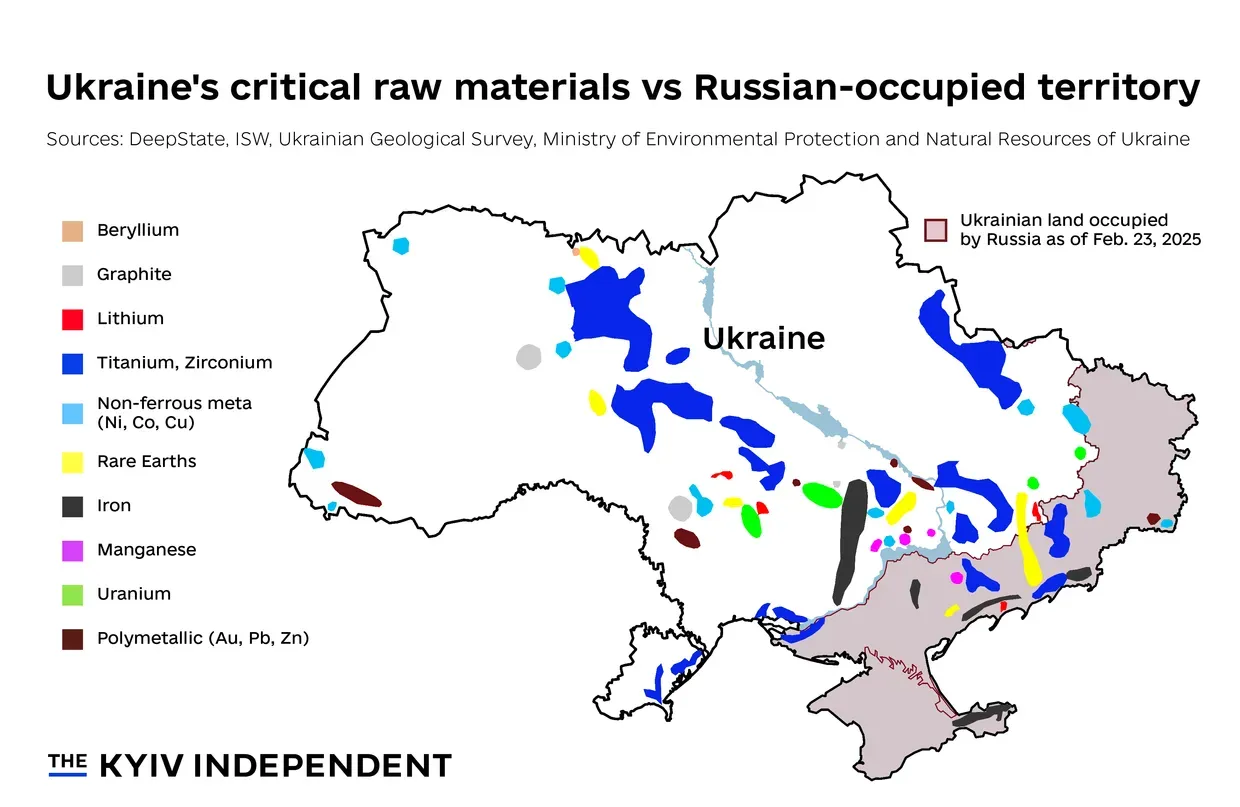
A map showing the location of critical raw materials in Ukraine. (The Kyiv Independent) The Financial Times reported on March 27 that the latest version of the agreement proposed by the U.S. includes terms that would grant Washington unprecedented control over Ukraine's natural resources through a joint investment fund.
Ukrainian online newspaper European Pravda also wrote that the deal may contradict Ukraine's EU accession due to severe restrictions affecting Ukraine's economic sovereignty.
Following the news, Zelensky said that Kyiv would not sign the deal if it threatened the country's EU membership and reiterated that he does not consider Washington's aid to Kyiv a debt.
Bloomberg reported on March 29 that Kyiv was requesting changes to the current proposal, including greater investment from the U.S. and more clarity on how the joint fund would operate.
The Trump administration has touted the minerals deal as an essential part of Ukraine's path to peace but has failed to offer concrete security guarantees in exchange for broad access to resources.
Kyiv and Washington were set to sign an earlier version of the agreement on Feb. 28, but the plan fell apart after a heated Oval Office dispute between Zelensky, Trump, and Vice President JD Vance.
The White House has described the minerals deal as a mechanism for the U.S. to "recoup" some of the financial aid it has provided to Ukraine since the start of Russia's full-scale invasion.
US, Russia begin talks on rare earth minerals projects, Moscow claims“Rare earth metals are an important area for cooperation, and, of course, we have begun discussions about various rare earth metals and projects in Russia,” said Kirill Dmitriev, head of the Russian Direct Investment Fund.The Kyiv IndependentMartin Fornusek
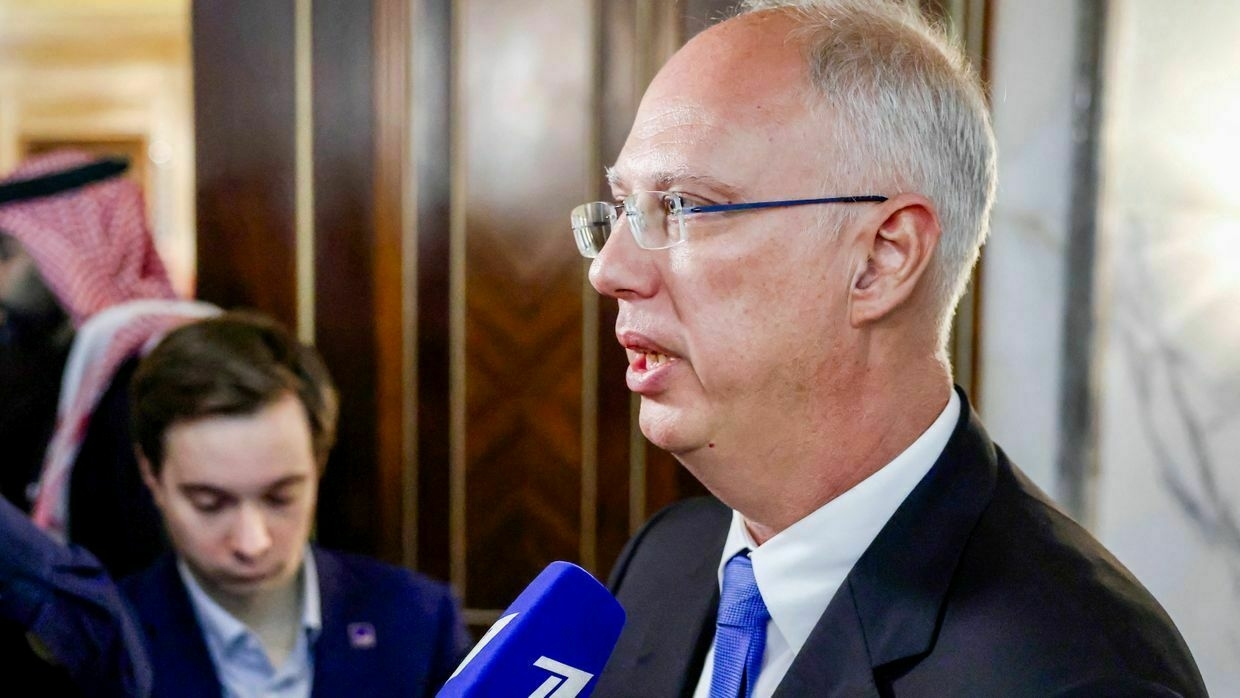
Russia trying to bypass Ukraine's positions in Toretsk by going underground, military saysRussian soldiers tried to enter Ukraine's rear in Toretsk in Donetsk Oblast via underground communications as battles in the city continue, said Victor Tregubov, a spokesperson for Ukraine's Khortytsia group of forces, on March 31.
Toretsk, which lies roughly 20 kilometers (12 miles) southwest of Russian-occupied Bakhmut, has seen fierce fighting in recent months, and Ukraine launched a counterattack in late February and early March. The city is largely occupied by Russian troops.
Speaking on national television, Tregubov said that Russian troops are having difficulty moving through the streets of Toretsk, so they have resorted to underground communications to attempt to advance in the city.
"Since this is also a priority sector, the Russians are trying to use every chance to bypass Ukrainian troops," the spokesperson said.
In a similar instance, Russian troops allegedly used a gas pipeline to gain a foothold on the outskirts of Sudzha in Russia's Kursk Oblast earlier this month to conceal their movement.
Last week, Ukraine's military also said that Russian forces have resumed their attacks in the Pokrovsk sector, which had experienced a relative lull in Russian activity until then.
President Volodymyr Zelensky said that Russia is planning renewed offensives in various parts of the front line, including in the Kharkiv, Sumy, and Zaporizhzhia oblasts.
Unless you act, ‘it’s just rhetoric’ — Baltic states skeptical of Western European leadershipAs the U.S. chooses an increasingly hostile posture toward Europe, the U.K. and France have been gearing up to lead the continent’s defense without Washington. French President Emmanuel Macron has coined the term “strategic autonomy,” which envisions a self-sufficient Europe that can defend itself…The Kyiv IndependentMartin Fornusek
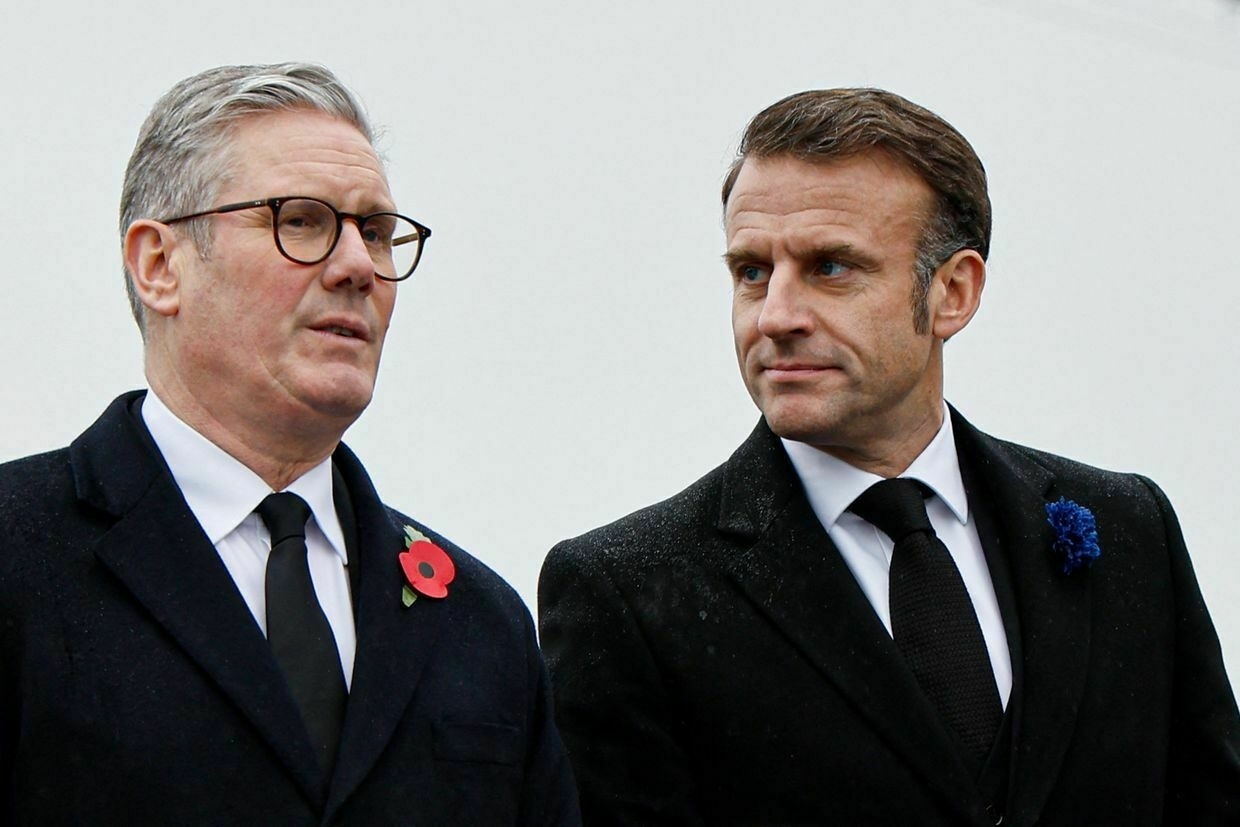
Sweden unveils its largest military aid package for Ukraine worth nearly $1.6 billionSweden will provide Ukraine with a military aid package worth almost $1.6 billion, Swedish Defense Minister Pal Jonson announced on March 31.
The latest package is Sweden's largest tranche of military assistance since the beginning of Russia's full-scale invasion in 2022, according to Jonson.
"The package includes, among other things, support for Ukraine’s air defense, artillery, satellite communications, and maritime capacity," the minister said on X.
With this package, Sweden's support to Ukraine since 2022 amounts to 80 billion Swedish kronor ($8 billion), the country's government said. This assistance has included Archer self-propelled howitzers, Strv 122 tanks, and CV90 infantry fighting vehicles.
The latest package includes $912 million worth of equipment that will be procured from the Swedish defense industry and delivered to Ukraine in the span of "about 0-24 months."
It also encompasses a $465 million donation to international multilateral initiatives, the Ukraine Defense Contact Group, and purchases from the Ukrainian defense industry.
Kyiv will further receive material and spare parts from the Swedish Armed Forces worth about $93 million, including m58 machine guns, ammunition, roughly 100 vehicles of various types for air base maintenance, and other support.
Stockholm is also allocating $46 million for an export guarantee to supplement procurement for donations to Ukraine, ensuring more Swedish companies can support Kyiv by providing requested material.
Finally, the Swedish Defense Materiel Administration, a state military procurement agency, "will also be tasked with identifying, testing and funding military solutions from small tech companies that need to be verified or scaled up for military purposes in Ukraine," Jonson said.
The package comes as European countries seek to bolster support for Ukraine as future backing from the U.S., the leading military donor, grows increasingly uncertain under President Donald Trump.
Netherlands pledges over $2 billion for Ukraine in 2025, including $540 million for dronesThis support will include 500 million euros ($540 million) for Ukraine’s Drone Line project, Dutch Defense Minister Ruben Brekelmans said.The Kyiv IndependentKateryna Denisova
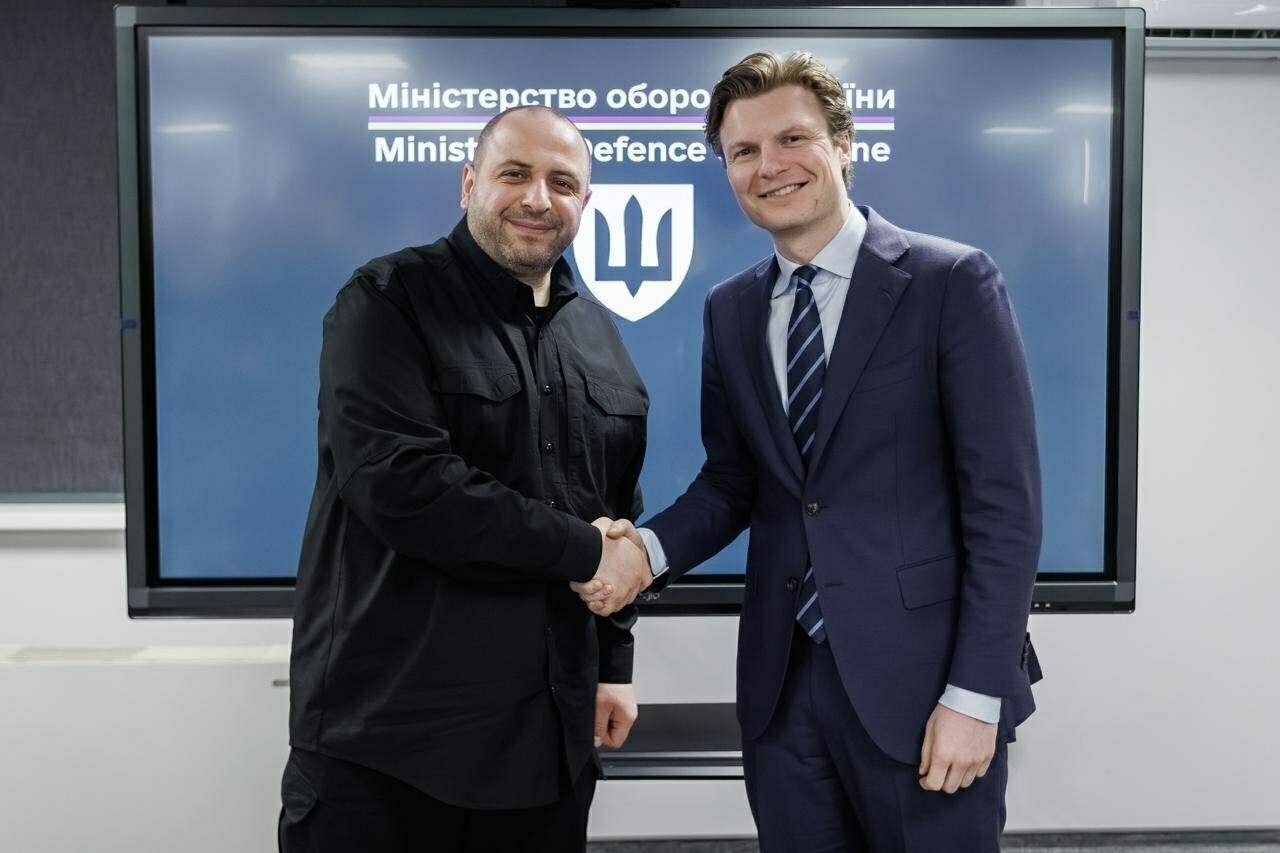
Trump's spiritual adviser visits Bucha, meets Ukraine's religious leadersU.S. President Donald Trump's spiritual advisor, Pastor Mark Burns, arrived in Ukraine and visited cities in Kyiv Oblast liberated from Russian forces in 2022, Chief Rabbi of Ukraine Moshe Azman said on March 31.
Azman invited Burns to visit Bucha, Borodianka, and Irpin. Three years ago, Russia's attempts to encircle Kyiv failed after more than a month of heavy fighting, with Moscow's troops retreating from the capital's outskirts.
Hundreds of residents of the three towns were found to have been tortured, raped, and executed by the Russian army.
"The war in Ukraine is bigger than Democrats or Republicans, the left or the right. Whether you dislike President Trump or President (Volodymyr) Zelensky, real people are dying here," Burns said on X.

Ukraine's religious leaders and U.S. Pastor Mark Burns during a meeting on March 30, 2025. (Mark Burns/X) 
U.S. Pastor Mark Burns arrived in Ukraine and visited cities in Kyiv Oblast liberated from Russian forces three years ago on March 30, 2025. (Chief Rabbi of Ukraine Moshe Azman/Facebook) Reflecting on his trip to Kyiv Oblast, Burns listed Russian war crimes, including deported children and raped women, executions of civilians and destruction of multiple churches.
Ukraine's top religious leaders also told him about Russia's systematic religious persecution.
"Yet despite these horrors, Ukraine stands strong as a beacon of religious freedom, welcoming all faiths," Burns said.
The pastor said that Ukrainian soldiers on the front line "are not asking for money" but for more weapons and fighter jets "to shoot down the drones that still fire at civilian buildings, and killing people."
Ukraine has agreed to a U.S.-proposed full 30-day ceasefire, saying on March 11 that Kyiv is ready to take such a step if Russia also agrees to the terms. So far, Russia has refused, instead attempting to extract major concessions from the U.S. in exchange for partial ceasefire agreements.
Mark Burns is a televangelist and pastor of Harvest Praise & Worship Center in South Carolina. He supported Donald Trump in the 2016 presidential election and was labeled by Time Magazine as "Donald Trump's Top Pastor."
"Pastor Burns is a man who has the ability to be heard where big decisions are made. And I believe that the voice of truth from Ukraine will be brought to the heart of the new U.S. leadership," Azman said.
Trump has adopted a more critical stance toward Ukraine than his predecessor, former President Joe Biden. The new administration has temporarily paused military and intelligence support for Kyiv while praising the U.S. president's supposedly warm relationship with Russian President Vladimir Putin.
Note from the author:
Ukraine War Latest is put together by the Kyiv Independent news desk team, who keep you informed 24 hours a day, seven days a week. If you value our work and want to ensure we have the resources to continue, join the Kyiv Independent community.
-
Russia's Black Sea ceasefire demands are a 'fools errand' for Trump, major blow for Ukraine
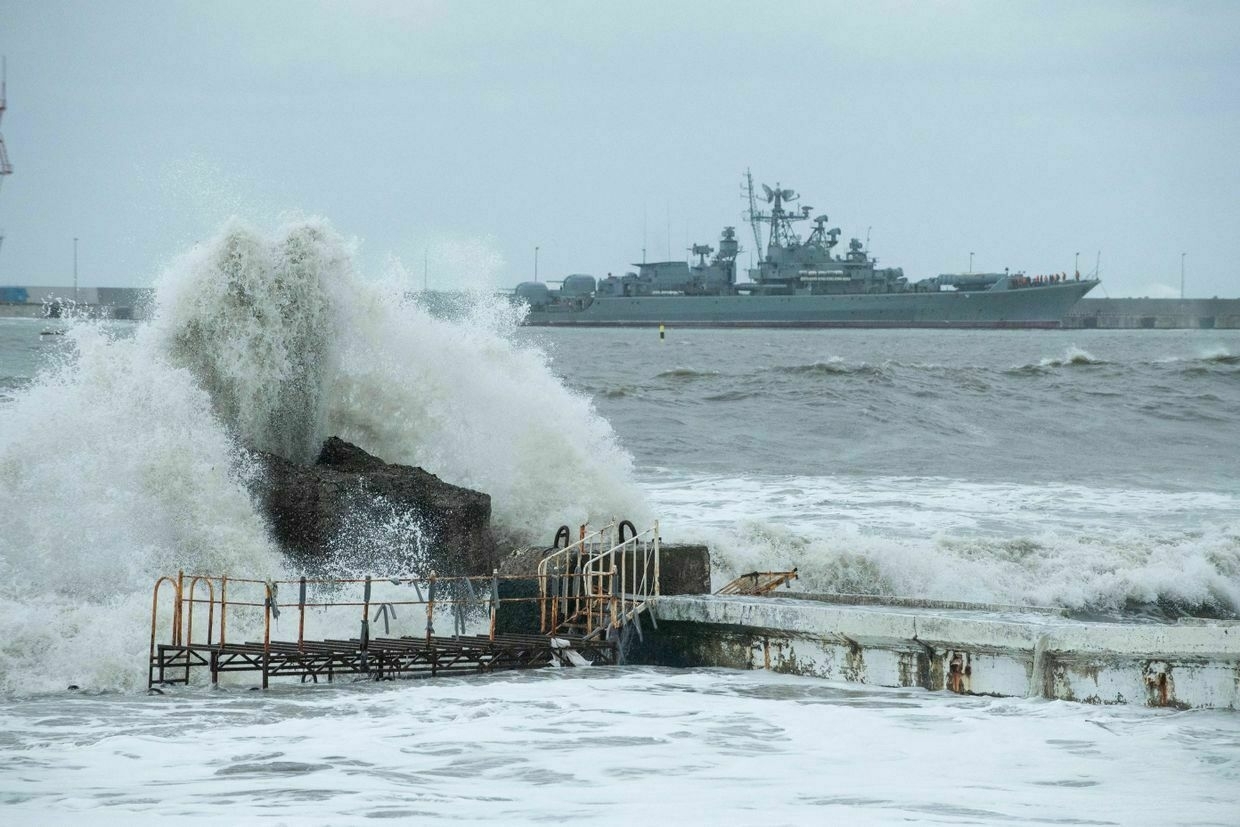
With much fanfare, the U.S. on March 25 announced it had brokered an agreement between Russia and Ukraine to “eliminate the use of force” in the Black Sea after two days of talks in Saudi Arabia.
But while Kyiv said it was ready to abide by it straight away, Moscow stalled, insisting the U.S. lift some of the sanctions imposed on it since the start of its full-scale invasion of Ukraine.
The Kremlin has innocuously framed its request as a badly-needed boost to its global food and fertilizer trade, largely in the hands of several Russian agro-oligarchs.
But experts and officials who spoke to the Kyiv independent said lifting sanctions could in fact help line the pockets of both Russian oligarchs and Moscow’s war machine, as well as putting pressure on what has so far remained a largely unified Western sanctions response to Russian aggression.
“Any easing of sanctions directly benefits the system fueling Russia’s war,” a Ukrainian official who works on sanctions told the Kyiv Independent under the condition of anonymity because he wasn’t authorized to comment on the issue.
“It’s impossible to separate Russian oligarchs from their chemical assets — especially fertilizer plants — which are deeply intertwined with the Russian military-industrial complex,” they added.
Which sanctions does Russia want lifted?When announcing the ceasefire deal, the U.S. said it would “help restore Russia’s access to the world market for agricultural and fertilizer exports,” but did not provide further details of how this could happen, or if it would involve the lifting of sanctions.
Russia’s main demand is to lift sanctions on some financial institutions including the state-owned agricultural bank Rosselkhozbank.In addition, it wants other banks related to agriculture to be reconnected to the Brussels-headquartered SWIFT global banking payment system. Russian banks were disconnected from SWIFT after the start of Russia’s full-scale invasion of Ukraine in 2022.
Despite the Kremlin insisting Russia’s global agribusiness needs the boost from eased sanctions, it is in fact already on the up.
"An integral part of the Black Sea initiative is the lifting of sanctions on our banking institutions involved in settlements related to agricultural goods," Kremlin spokesperson Dmitriy Peskov told reporters on March 28, Russian state news agency TASS reported.
"If European countries refuse to take this step, it means they are not interested in following the path of peace," he added.
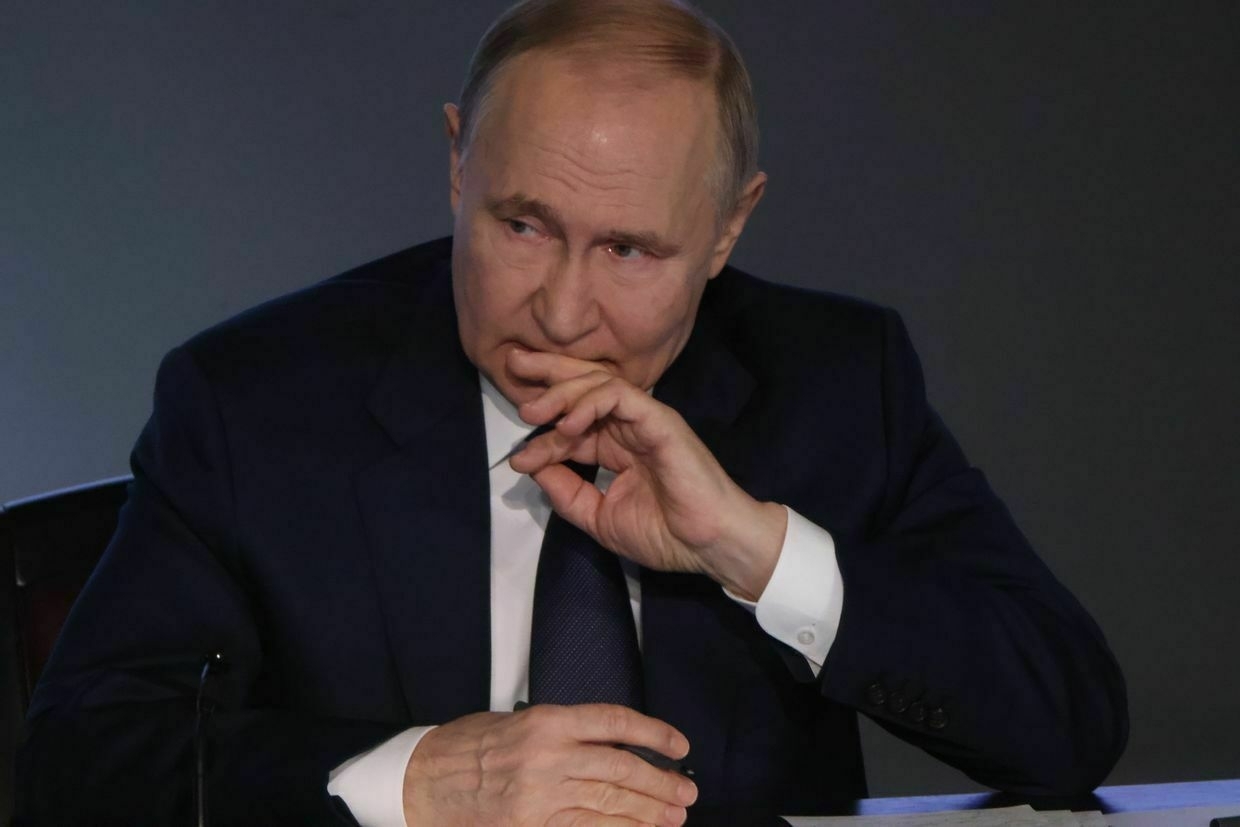
Russian President Vladimir Putin grimaces during the Expanded Board of the Ministry in Moscow, Russia, on March 5, 2025. (Contributor / Getty Images) What is the state of Russia's global agribusiness?Russia is one of the top agricultural exporters globally and its food and fertilizer companies were not sanctioned to ensure global food security.
Despite the Kremlin insisting Russia's global agribusiness needs the boost from eased sanctions, it is in fact already on the up.
Sanctions have made it harder for the sector to secure insurance for shipping and access to finance and machinery, but this has not majorly impacted their trade.
Russian agricultural exports increased by 8% in 2023 compared to 2022, and by nearly 10% in 2024. Fertilizer exports dropped by 27% in 2023 compared to 2022 but increased by 15% compared to 2021.
In the last year, Russian fertilizer has become even more competitive, thanks largely to cheap gas, Lilit Gevorgyan, Associate Director, Economics at S&P Global Market Intelligence, told the Kyiv Independent.Despite a 30% tariff on Russian fertilizer imports in the EU, they have become increasingly common in the bloc, making up 25% of the market, according to S&P Global Market Intelligence.
As Ukraine, Russia agree to ceasefire at sea, Moscow’s battered Black Sea Fleet is set to get a reprieveThe White House on March 25 announced that Ukraine and Russia had agreed to “eliminate the use of force” in the Black Sea, returning the spotlight to a theater of battle that has been relatively quiet for more than a year. Throughout 2022 and 2023, Ukrainian strikes against Russian ships,The Kyiv IndependentMartin Fornusek
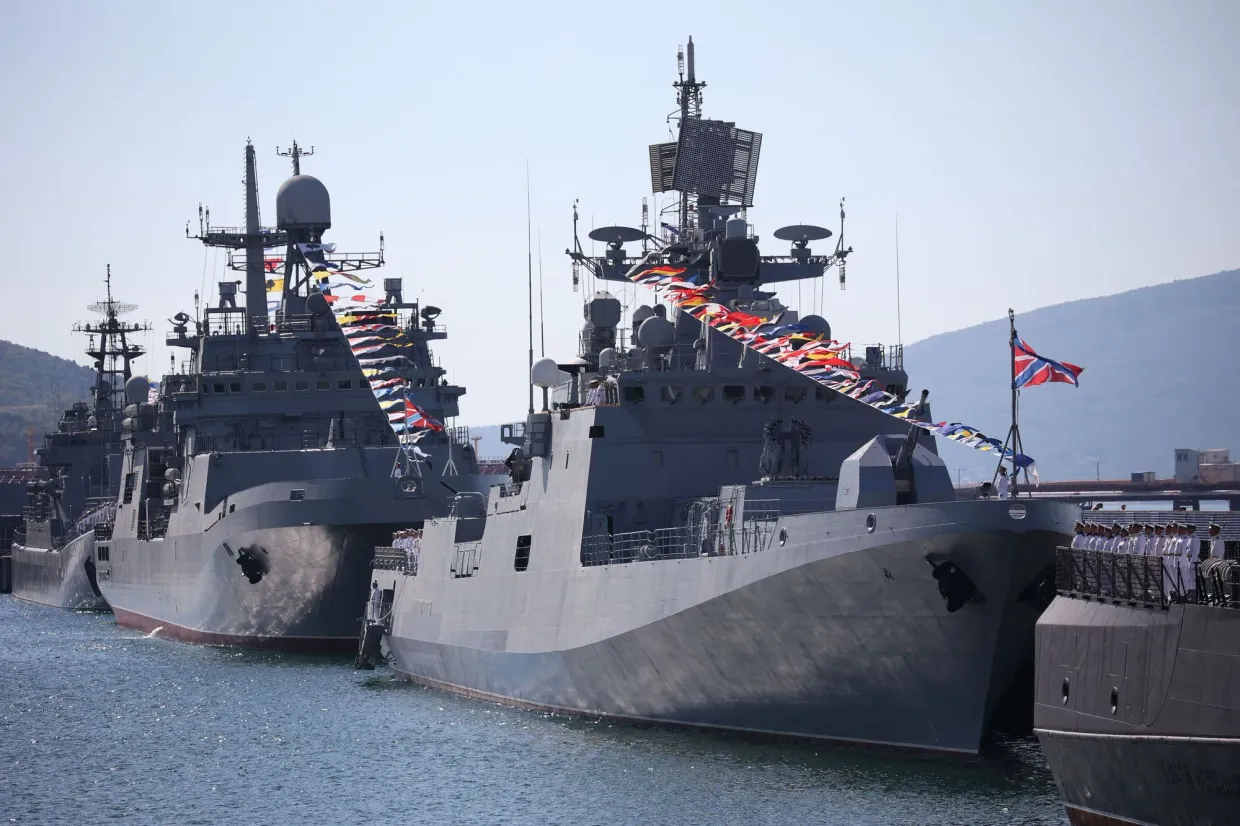
Why is Russia focused on these sanctions?Moscow’s demands are likely less about boosting its agriculture sector and more about overcoming wider financial sanctions, several experts told the Kyiv Independent.
Currently, due to being disconnected from SWIFT, Moscow is reliant on the Chinese banking system, although problems emerged last year when Chinese banks began curbing Russian transactions over fears of losing access to the U.S. dollar.
Regaining access to the Western financial system would be a major boon for Moscow as all of its major state-owned banks are sanctioned, so they cannot be used for trade or capital operations.
The Kremlin likely picked Rosselkhozbank because of its agricultural lending, which fits its narrative around the deal being important for its agricultural sector.However, the state-owned bank is not limited to agribusinesses. If the sanctions against it are lifted, it could lend to anyone while also being used to circumvent other sanctions, launder money, and receive oil export revenues.
Russia "needs to have a large state-owned or state-controlled bank outside of the sanctions perimeter," said Alexander Kolyandr, a non-resident Senior Fellow with the Democratic Resilience Program at the Center for European Policy Analysis (CEPA).
“That will generally help Russia to reduce risks and prices of imports, facilitate export, and make capital movements easier,” he added.Additionally, while food and fertilizer companies have not been sanctioned, its agro-oligarch owners, such as billionaire fertilizer tycoon Andriy Melnichenko, one of the most important businessmen in Russia with close connections to the Kremlin, have been.
If sanctions on Rosselkhozbank are lifted, they would be able to use the bank to move money, get loans, and make potential investments, funneling money into the pockets of businessmen that have fuelled the Kremlin's war machine.Fertilizer companies in particular have sold chemicals to Russia’s military industrial complex, such as Melnichenko’s company Eurochem, Reuters has previously reported.
Russia also wants to get rid of restrictions on European ports that have prevented its vessels from docking, and wants sanctions lifted on ships flying the Russian flag. This would boost Russia’s exports and allow its ships to seek maintenance at EU ports.
Moscow’s final demand is to allow the import of agricultural machinery, like tractors, which have been banned by the U.S. and the EU.Western machinery could improve productivity and revenue for Russian agribusinesses, meaning more money for their oligarch owners.
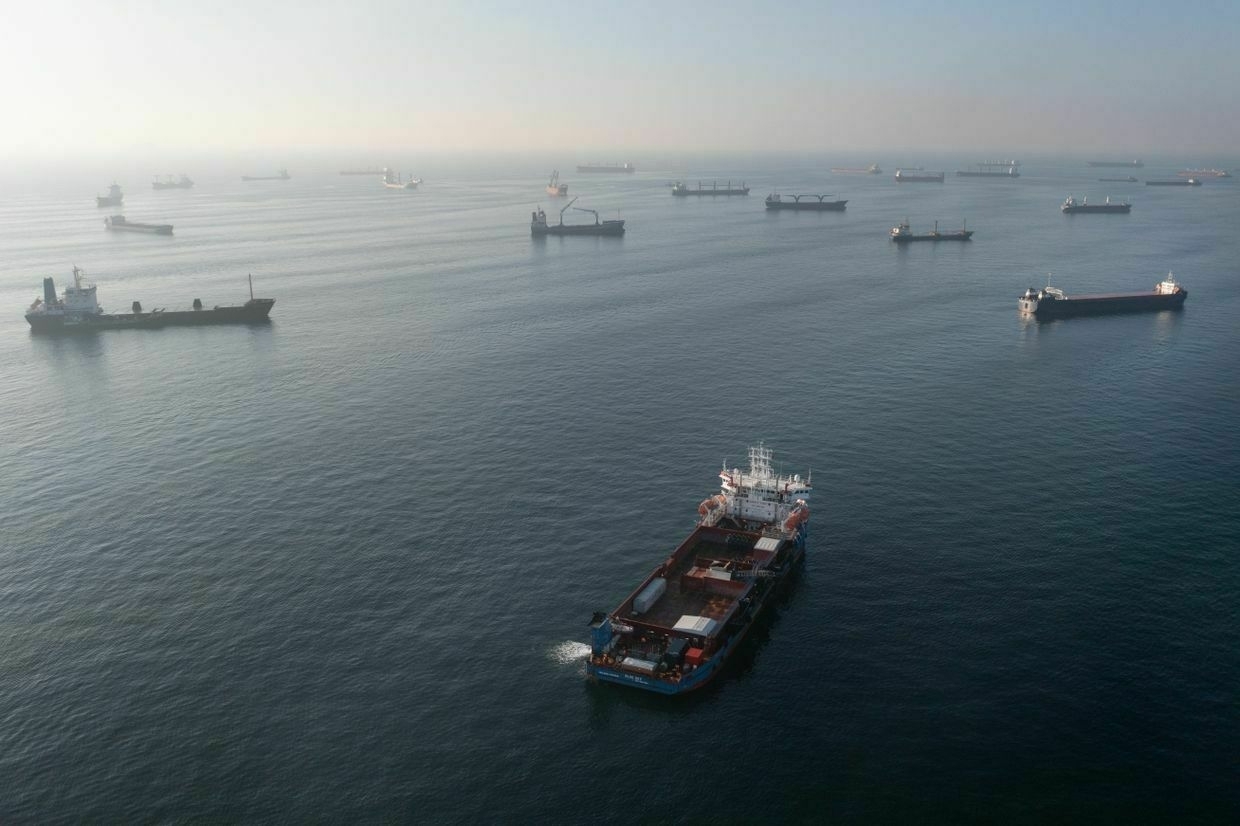
Ships, including those carrying grain from Ukraine and awaiting inspections, are seen anchored off the Istanbul coastline in Istanbul, Turkey, on Nov. 2, 2022. (Chris McGrath / Getty Images) 
French Navy personnel operate an ATL2 Atlantique 2 airplane over the Black Sea during the Sea Shield 2023 military exercise off Constanta, Romania, on March 30, 2023. (Daniel Mihailescu / AFP via Getty Images) What is the current US position?U.S. President Donald Trump sees sanctions as a negotiation tool and threatened Russia with secondary oil sanctions on March 30 for heel-dragging during the peace process.
Despite this, the White House has already said it is mulling over lifting sanctions as part of the Black Sea deal, and noted that some of the sanctions Russia wants lifted belong to the EU, not the U.S.
Ukraine’s Foreign Ministry spokesperson Heorhii Tykhyi said on March 27 that so far, Ukraine and the U.S. haven't agreed to lift any sanctions on Russia.What happens if the US agrees to lift these sanctions?If the U.S. does heed Moscow’s demands, Russia will have access to hard currency and a more productive agricultural sector, Gevorgyan said.
"The loosening of sanctions will have the very real effect of immediately helping to feed the defense industrial machine within Russia."
In turn, this would benefit the oligarchs that have profited off the war, from stealing Ukrainian grain in occupied territories, to selling chemical products to Russia’s military sector.
"The loosening of sanctions will have the very real effect of immediately helping to feed the defense industrial machine within Russia," Steven Horrel, non-resident Senior Fellow with the Transatlantic Defense and Security Program at CEPA, told the Kyiv Independent.Horrell adds there is also concern that even the lifting of limited and specific sanctions could undermine the entire sanctions regime imposed by Western nations in their support for Ukraine and fight against Russian aggression.
Giving in to Putin now would be a "fool’s errand" and a "show of weakness" from the U.S., he said, adding it would also destigmatize Russian companies that have stolen from Ukraine and "reward an aggressor for invading its neighbor."
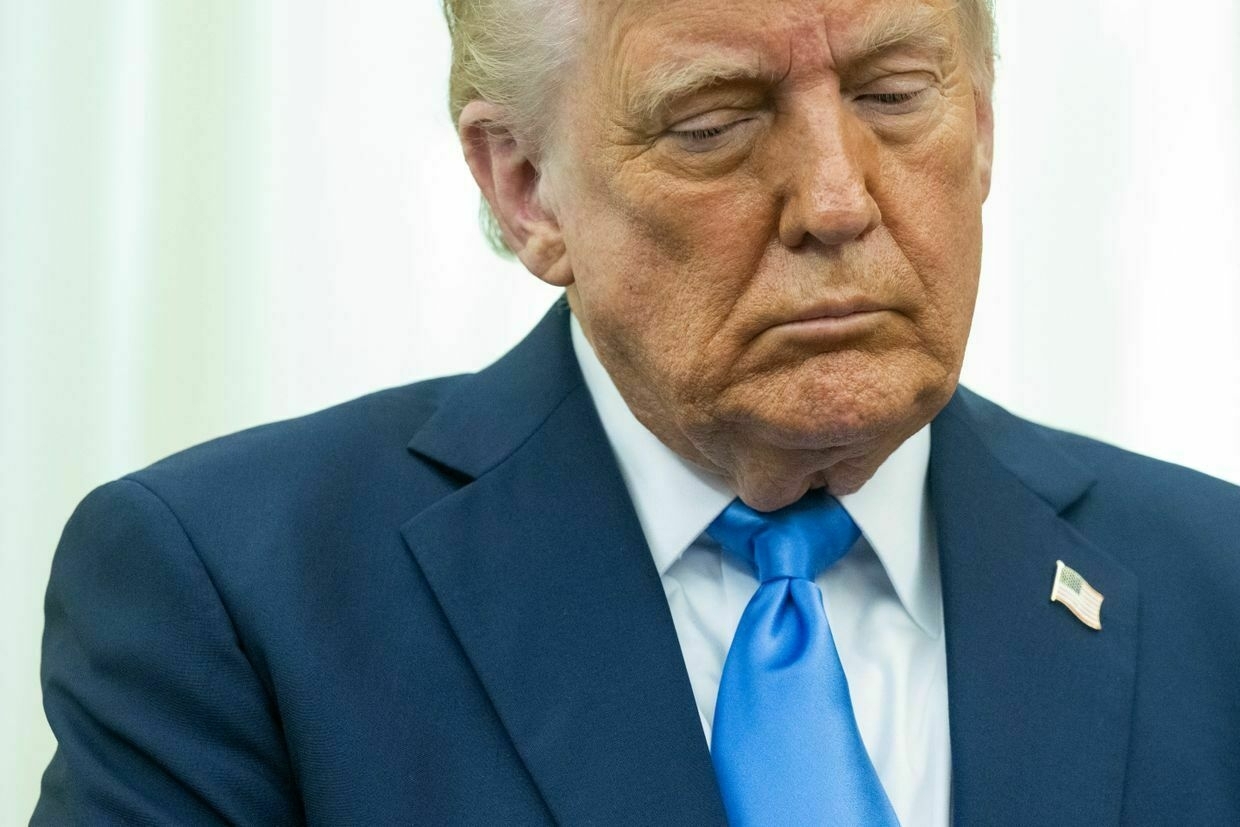
U.S. President Donald Trump in the Oval Office of the White House in Washington, D.C., U.S. on March 28, 2025. (Saul Loeb / AFP via Getty Images) Even if the White House eases restrictions, European countries are likely to continue sticking to their guns.
"This may be intended to drive a further wedge between the U.S. and Europe", Taisa Markus, adjunct professor at the University of Illinois College of Law, and visiting professor at Kyiv Mohyla Faculty of Law, told the Kyiv Independent.
"Even if the U.S. lifts financial sanctions, so long as EU, U.K. and other sanctions remain in place, Moscow is unlikely to gain meaningful access to the global financial markets, and major American financial institutions are likely to remain hesitant to do business with Russia," she added.
Unless you act, ‘it’s just rhetoric’ — Baltic states skeptical of Western European leadershipAs the U.S. chooses an increasingly hostile posture toward Europe, the U.K. and France have been gearing up to lead the continent’s defense without Washington. French President Emmanuel Macron has coined the term “strategic autonomy,” which envisions a self-sufficient Europe that can defend itself…The Kyiv IndependentMartin Fornusek
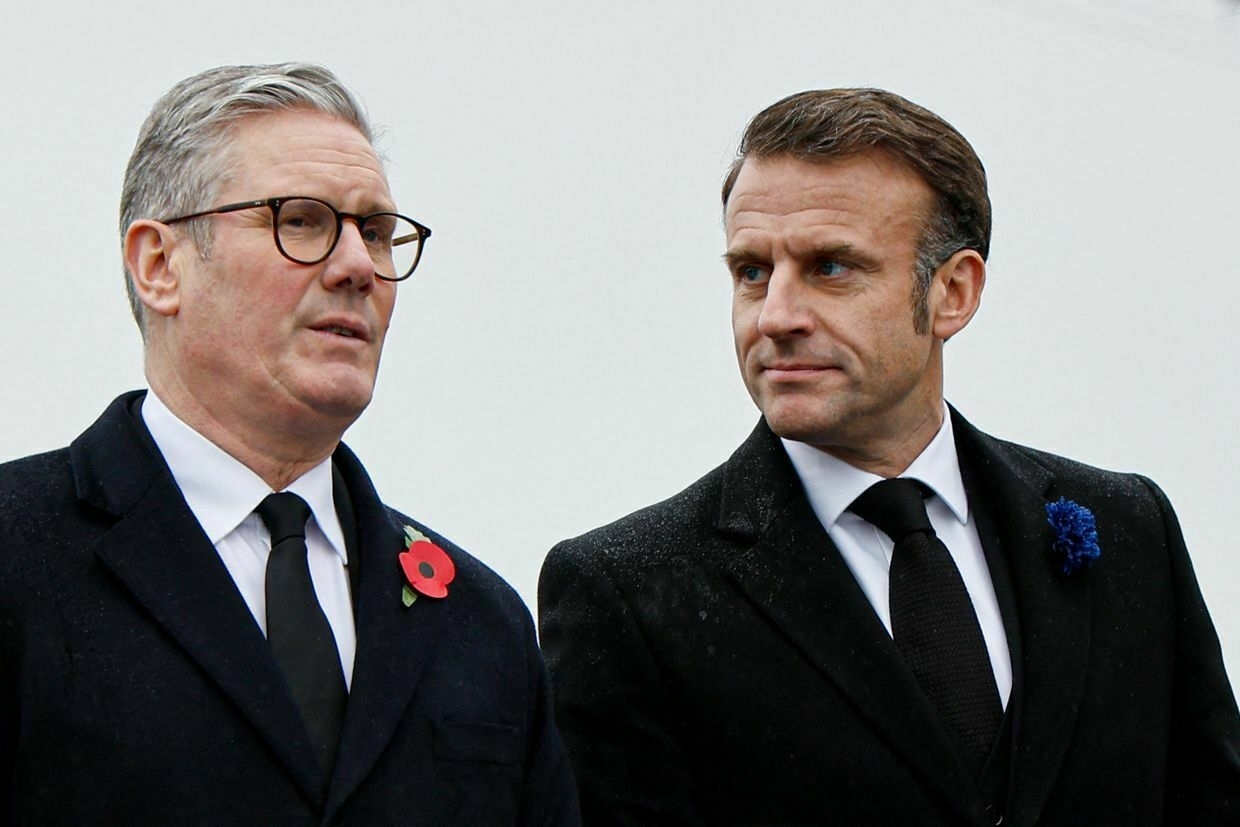
-
🔴 Wrap-Up: Trump, Putin & Ukraine – Negotiations Stalled
-
Weimar+ group pledges more aid to Ukraine, weighs new Russia sanctions
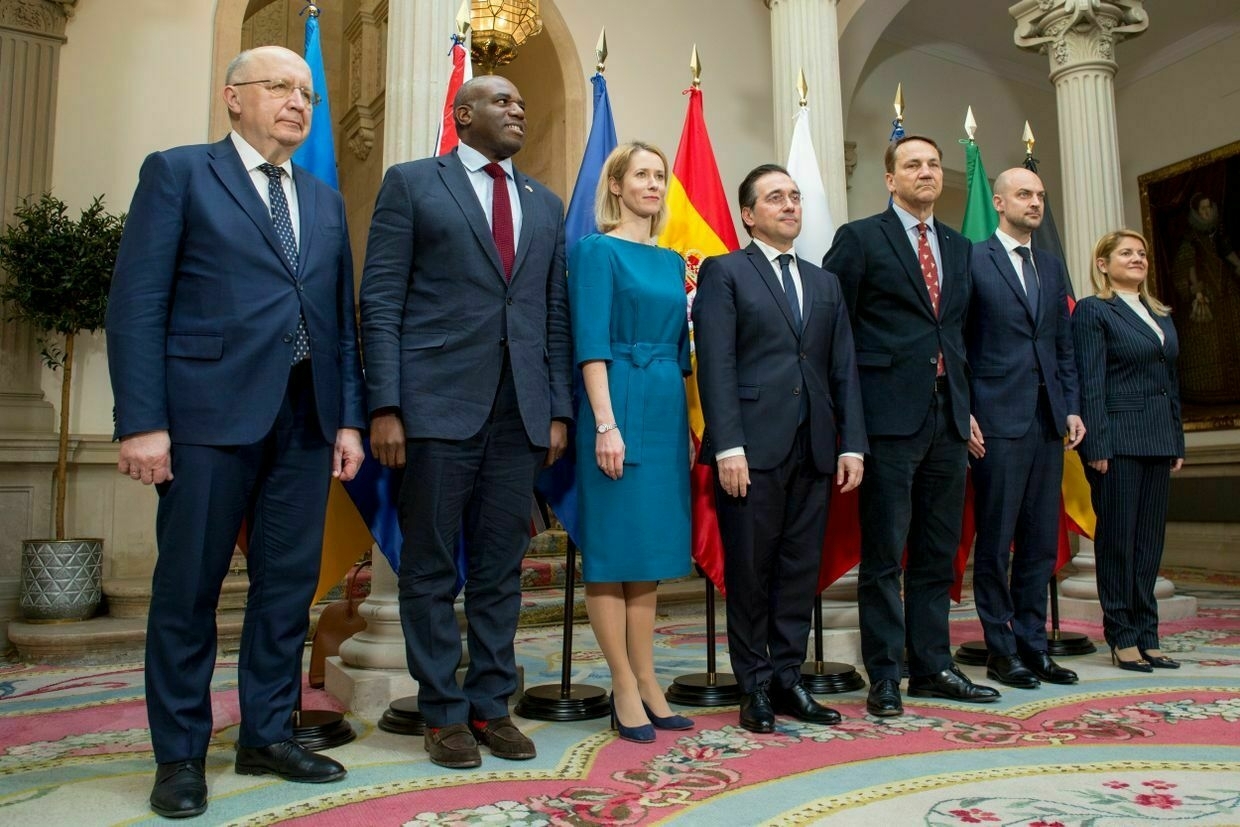
The Weimar+ group announced on March 31 that it would increase aid to Ukraine while considering additional sanctions on Russia to pressure Moscow into a ceasefire, Reuters reported.
Foreign ministers from Spain, Germany, France, Italy, Britain, and Poland, along with EU foreign policy chief Kaja Kallas, called on Russia to agree to an “immediate and unconditional ceasefire on equal terms and with full implementation."
Moscow has refused a full 30-day ceasefire agreed upon by the U.S. and Ukraine in Jeddah on March 11, insisting on conditions that would undermine Kyiv’s defenses, such as a halt to foreign military assistance.
Although Washington brokered a partial truce in March, Russian forces attacked Kherson’s energy infrastructure on March 27, despite earlier claims that they had imposed a moratorium on such strikes since March 18.
The Weimar+ countries pledged to ramp up military, political, and humanitarian aid for Ukraine and warned that they are prepared to impose further sanctions on Moscow to ensure Kyiv secures the “best possible position to achieve a just and lasting peace."
Any future peace agreement must include reliable security guarantees for Ukraine, the group said, emphasizing that they are “ready to play a leading role in this regard.”
They also rejected any settlement that would limit Ukraine’s defense industry or restrict the presence of partner countries' military forces on Ukrainian soil.
U.S. President Donald Trump claimed on Feb. 24 that Russian President Vladimir Putin would allow European peacekeepers to operate in Ukraine as part of a settlement, though Russian Foreign Minister Sergey Lavrov publicly rejected the idea.
The meeting took place on the third anniversary of Ukraine’s recapture of Bucha, where Russian forces left behind mass graves and bodies of executed civilians in the streets.
The Weimar+ group reaffirmed its commitment to holding Russia accountable for war crimes and supporting efforts to establish a special tribunal within the Council of Europe.
The statement also stressed that Russian assets frozen by Western countries should remain inaccessible until Moscow ends the war and pays reparations for the destruction it has caused.
After Russia launched its full-scale invasion in February 2022, around $300 billion in Russian assets were frozen, with roughly two-thirds held in Europe.
While Ukraine has received loans backed by interest accrued on these funds, Kyiv has repeatedly urged full confiscation to finance its defense and reconstruction.
Weimar+ is a European diplomatic and geopolitical alliance introduced in February 2025 to expand the original Weimar Triangle, which included France, Germany, and Poland.
The alliance was formed in response to shifts in U.S. policy under Trump, particularly after his direct negotiations with Russian President Vladimir Putin on war in Ukraine, which excluded European participation.
Unless you act, ‘it’s just rhetoric’ — Baltic states skeptical of Western European leadershipAs the U.S. chooses an increasingly hostile posture toward Europe, the U.K. and France have been gearing up to lead the continent’s defense without Washington. French President Emmanuel Macron has coined the term “strategic autonomy,” which envisions a self-sufficient Europe that can defend itself…The Kyiv IndependentMartin Fornusek
